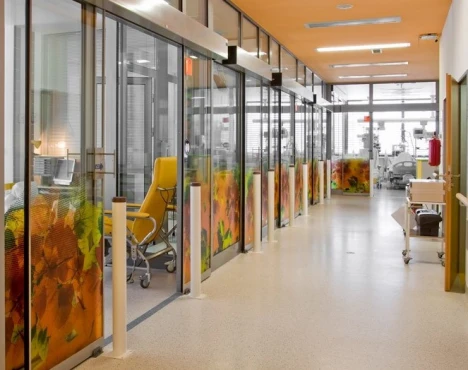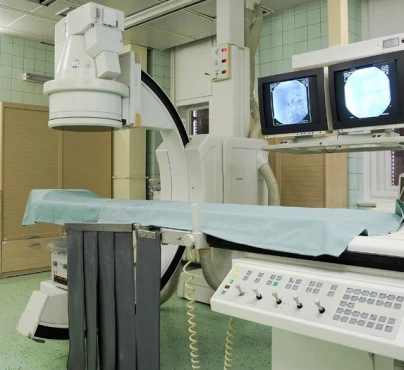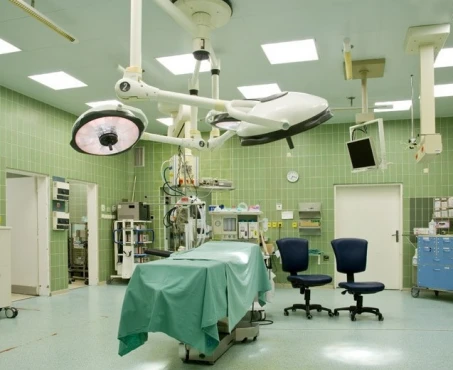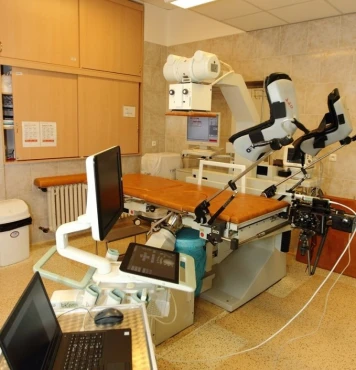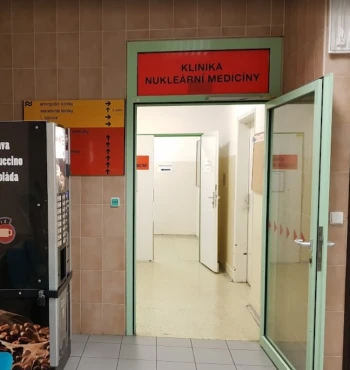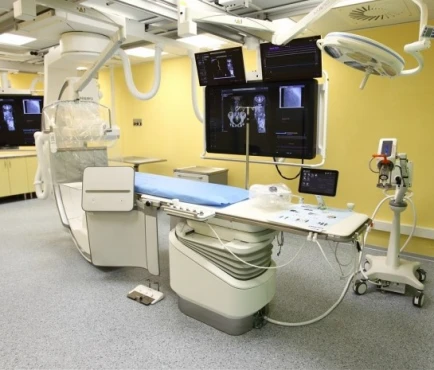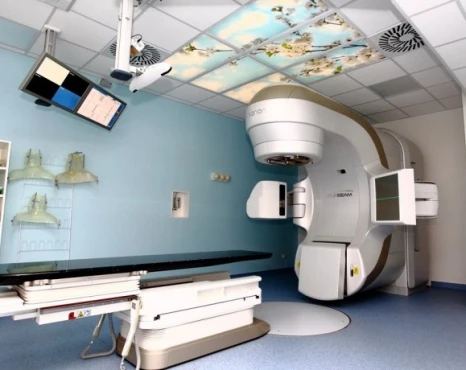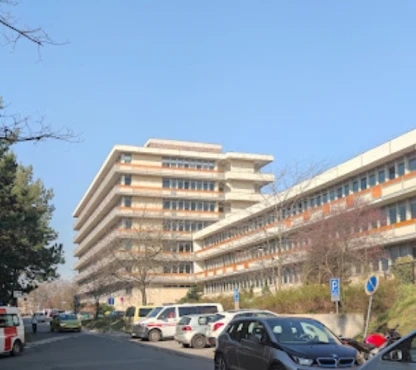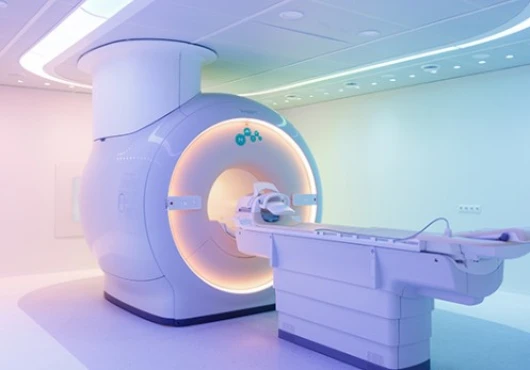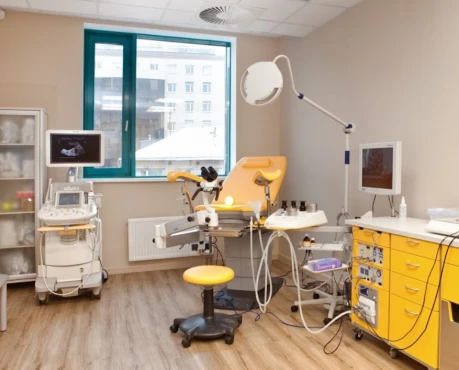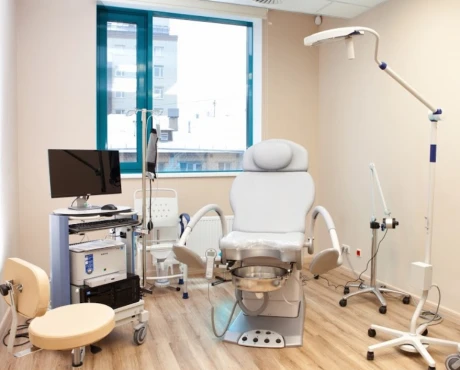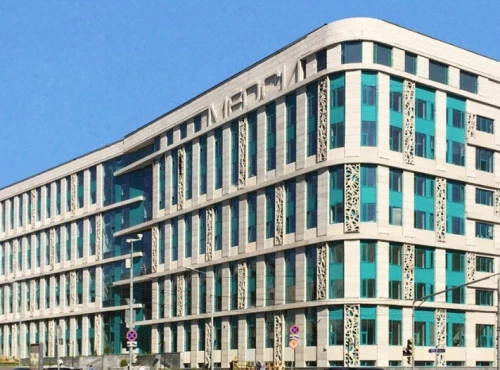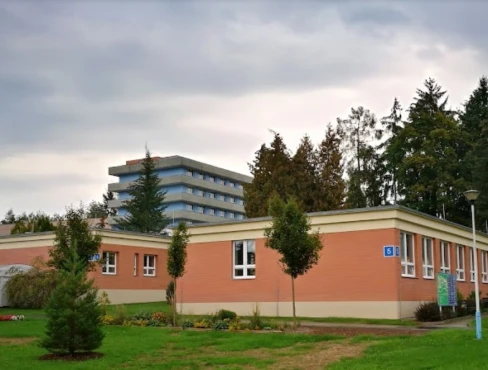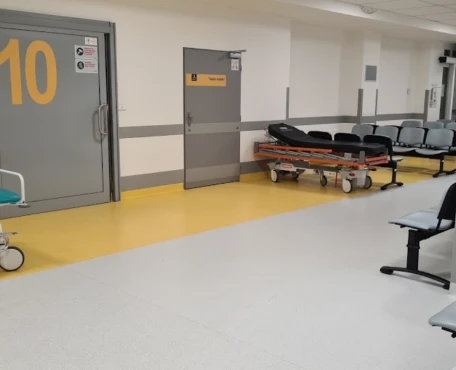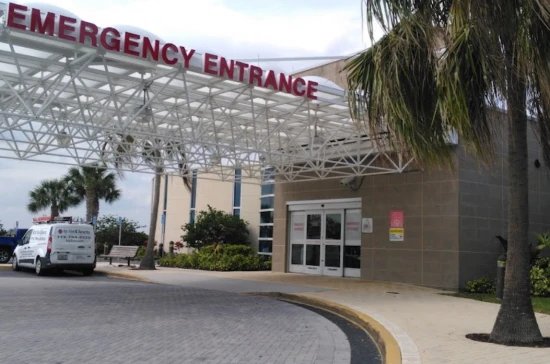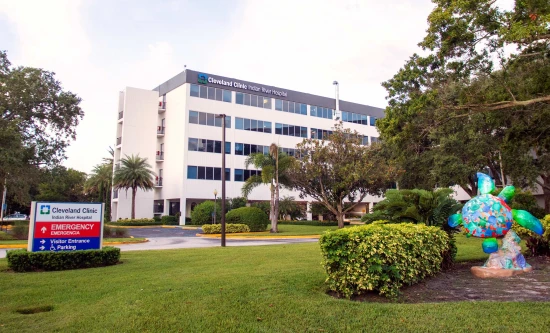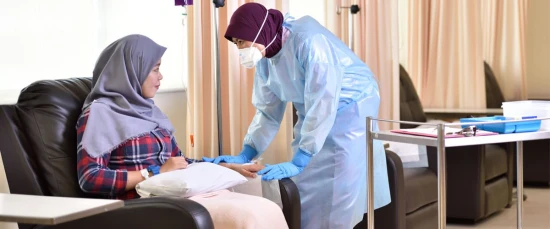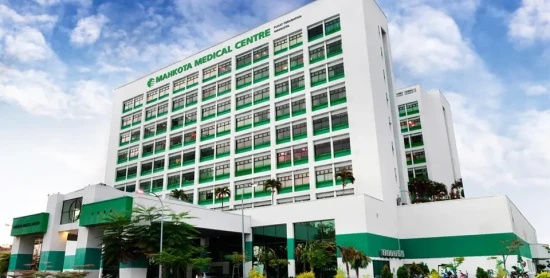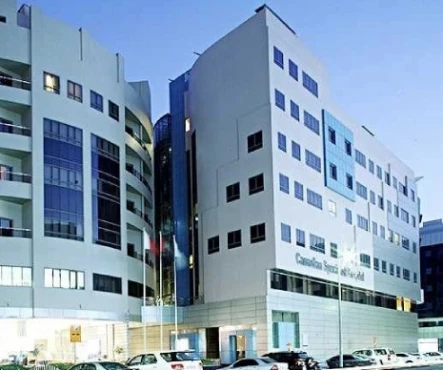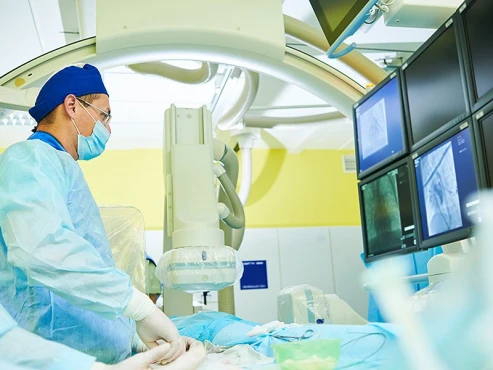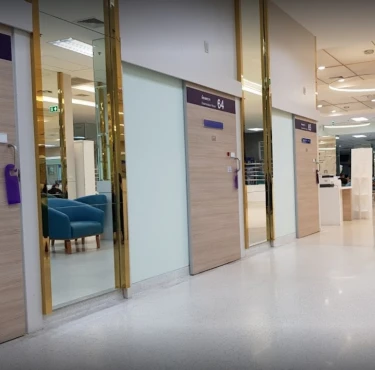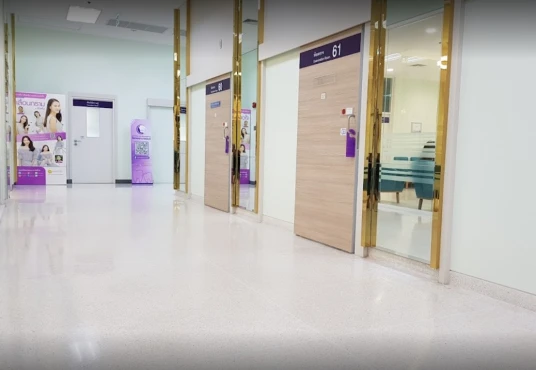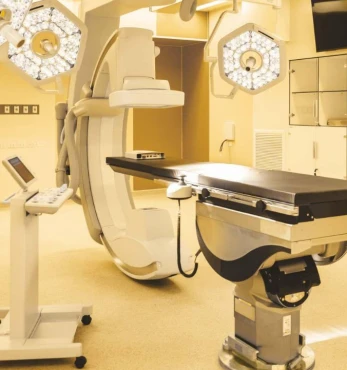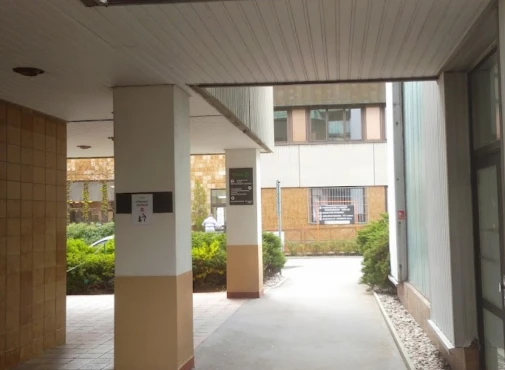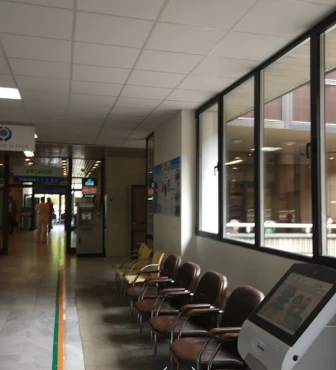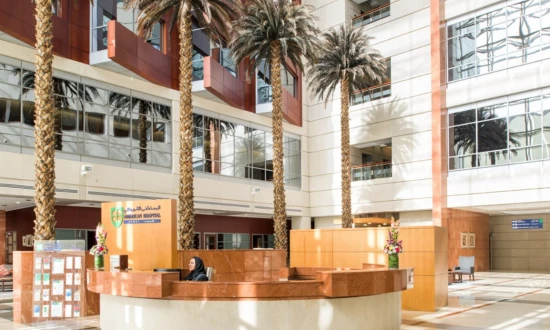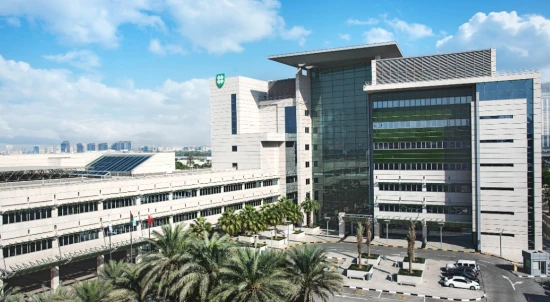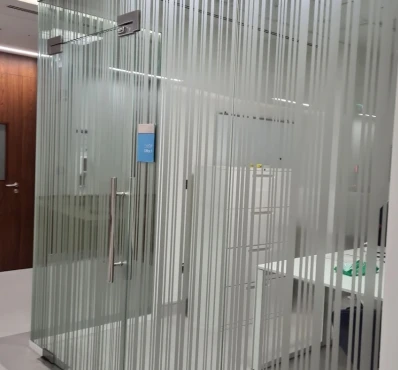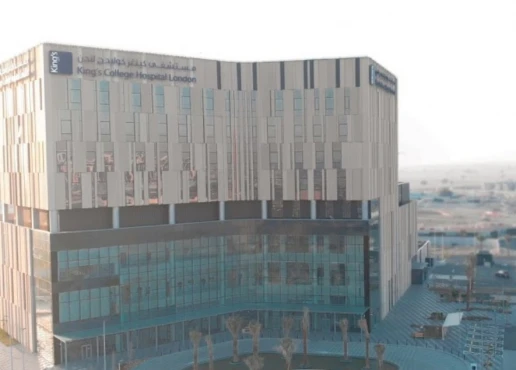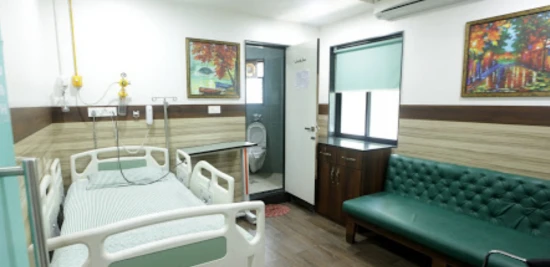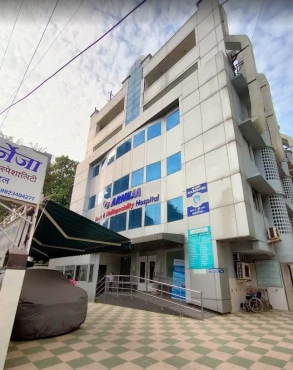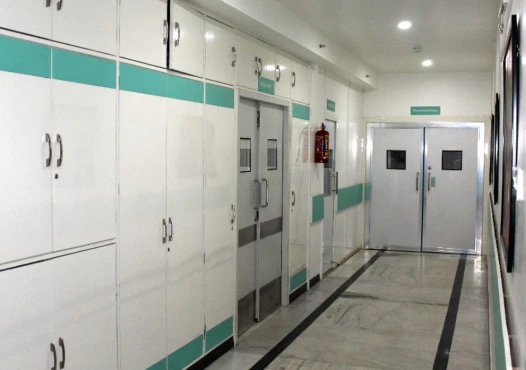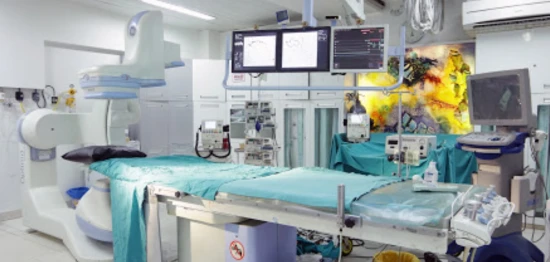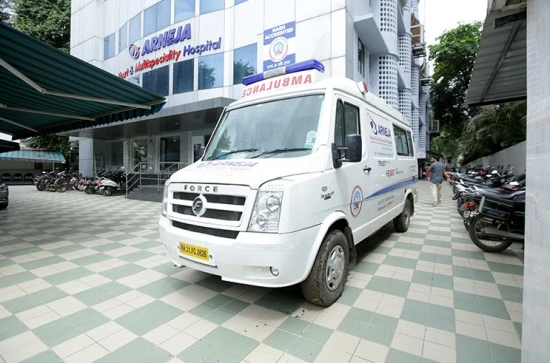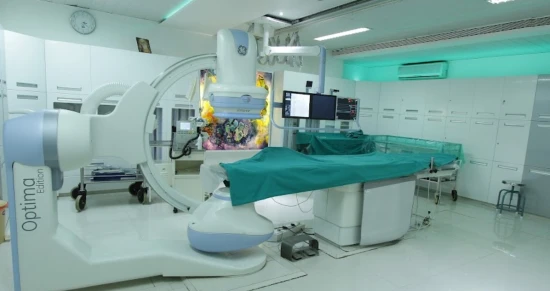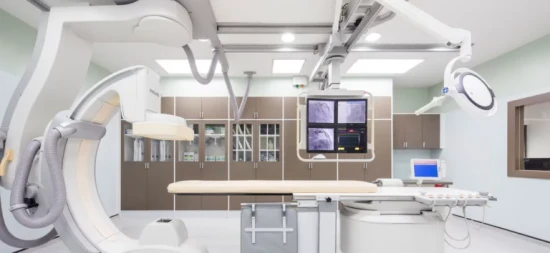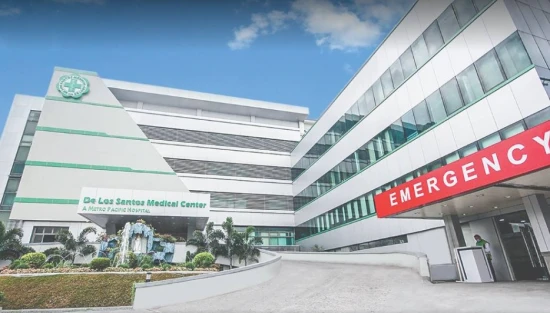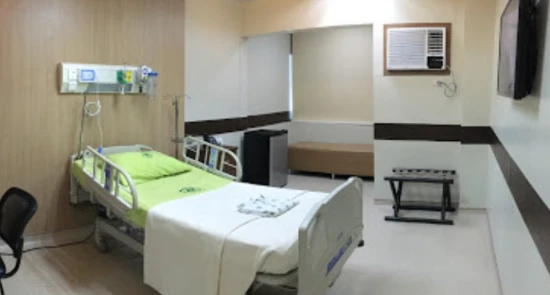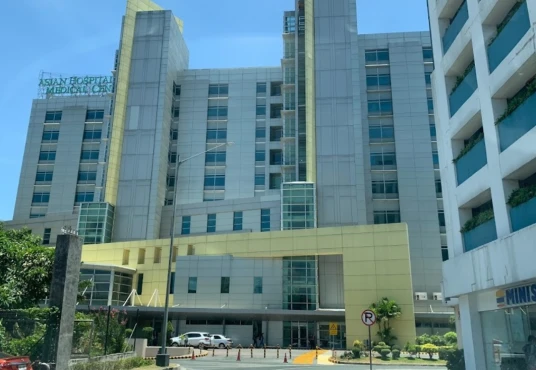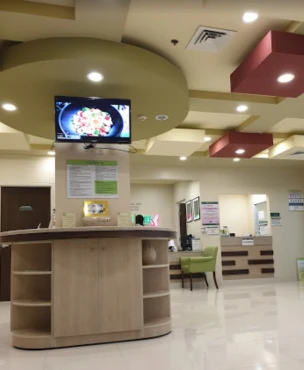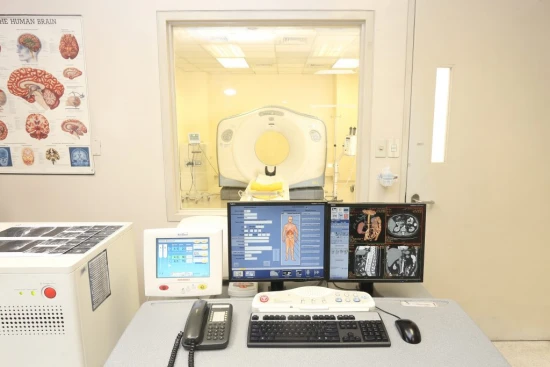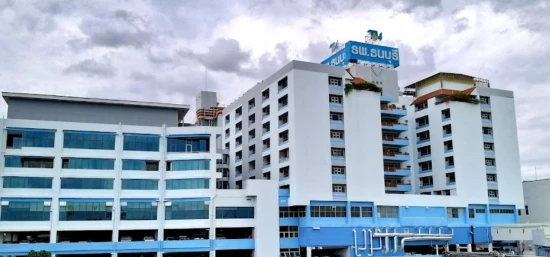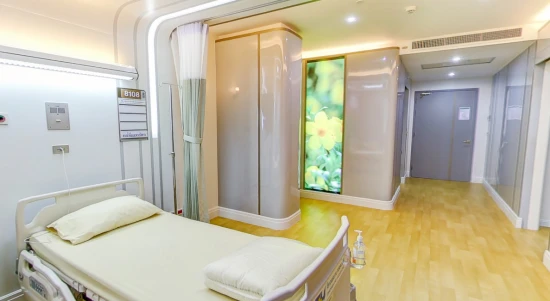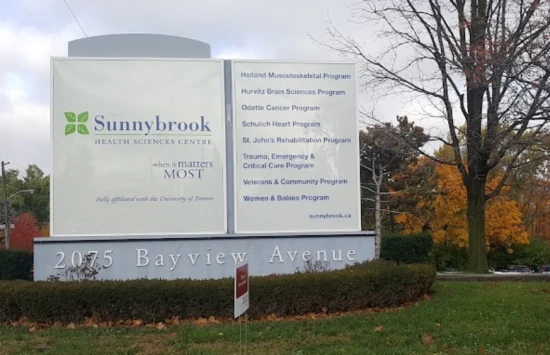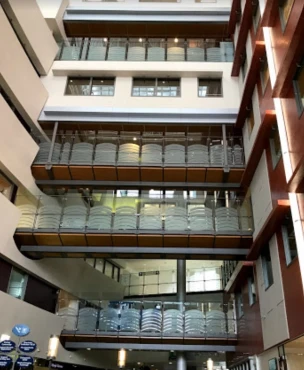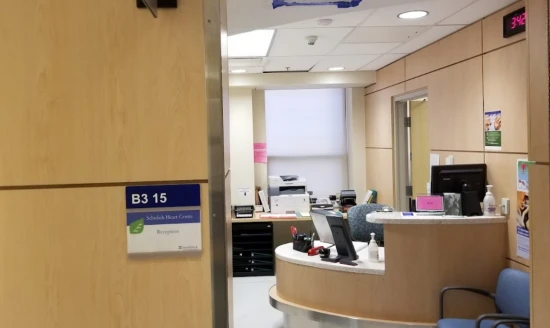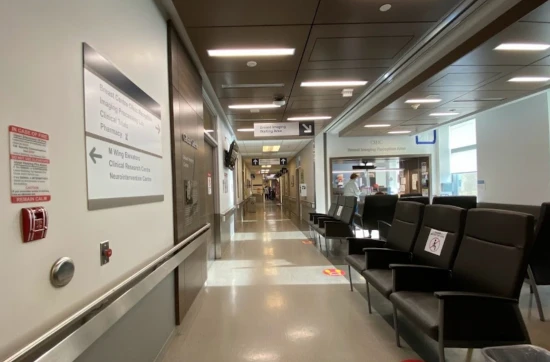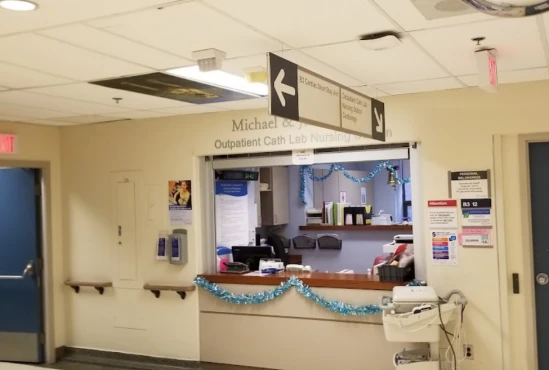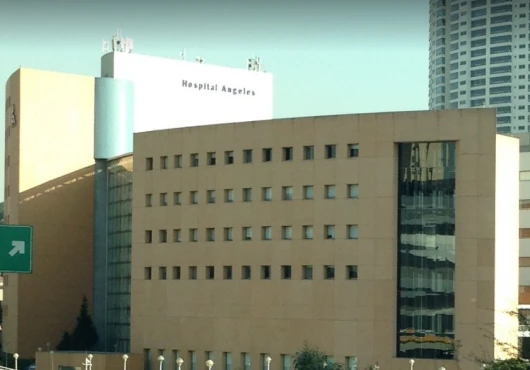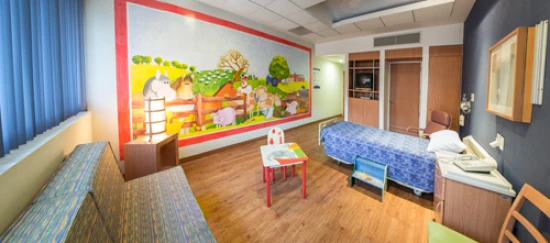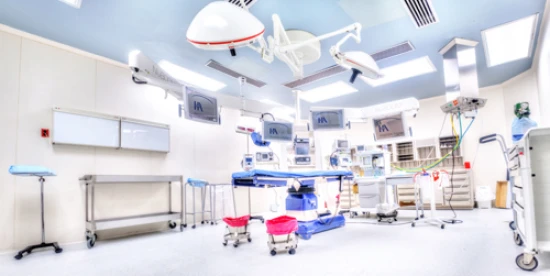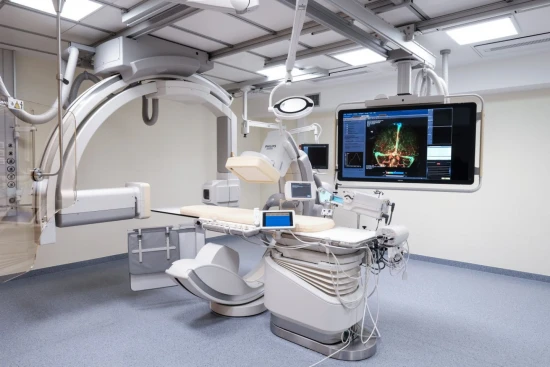Pulmonary valve stenosis treatment in 560 Cardiac surgery clinics worldwide
Top
Clinics
Ratings
Diseases
Quick navigation
560 clinics specializing in Cardiac surgery providing treatment of Pulmonary valve stenosis Pulmonary valve stenosis is a heart condition where the pulmonary valve becomes narrowed, restricting blood flow from the right ventricle to the pulmonary artery. This can lead to increased pressure in the right side of the heart and reduced blood flow to the lungs. disease worldwide.
3
from Jan Jedlička
August 10, 2023
Prumer
4
from Pavel Kudrna
May 19, 2021
Emergency on sunday morning, professional servis, all in one place, x-rays, ultrasonic, labs, all pretty fast, nice nurses. Do not use nearest first toilet at ground floor, use the other one, check out the paper, otherwise... In general, best solution, if you need a help urgently.
5
from David Šlechta
September 04, 2019
Ok
Prices for popular procedures:
-
Transcatheter pulmonary valve replacement (PVR)
≈ $16,171
-
Open commissurotomy
≈ $10,836
-
Dual chamber pacemaker insertion
≈ $7,411
-
Coronary artery bypass graft (CABG)
≈ $5,968
-
Heart valve replacement
≈ $22,115
-
Heart valve repair
≈ $20,526
-
Aortic valve replacement (AVR)
≈ $21,439
-
Mitral valve replacement (MVR)
≈ $15,550
-
Transcatheter aortic valve replacement (TAVR)
≈ $30,961
3.7
5 reviews
3
from Jan Jedlička
August 10, 2023
Prumer
4
from Pavel Kudrna
May 19, 2021
Emergency on sunday morning, professional servis, all in one place, x-rays, ultrasonic, labs, all pretty fast, nice nurses. Do not use nearest first toilet at ground floor, use the other one, check out the paper, otherwise... In general, best solution, if you need a help urgently.
5
from David Šlechta
September 04, 2019
Ok

Hradec Králové, Czech Republic
Specializations: Cardiac surgery, Vascular surgery, Thoracic surgery, Neurosurgery, Spine surgery, Orthopedic surgery, Oncology
The Hradec Králové University Hospital is one of the largest medical facilities not only in Eastern Bohemia, but also in the entire Czech Republic. Over
read more
1
from Aliaksandra Makarava
November 16, 2023
The worst hospital I have ever visited, the staff is thinking that they can figure what problems are important and which are not. They just thought I have nothing important to work with, so just said to visit another doctor. The next day morning another doctor said that I should have come earlier 🫠 I hope they will be treated like they treat other people!
1
from Adnan Strujic
October 14, 2023
No complaint about medical stuff. They are kind and very professional as always, however woman at reception with red hair at that info point kiosk at entrance is very arrogant and rude not only to us but while i was waiting there same behavior with all other patients.
1
from Tomasz Szwed
October 08, 2023
The worst hospitalization I've ever had. Mean nurses, no one wants to help, one time I was yelling for help from 16:00 to 20:30 to only be said to shut up.
BIG THUMBS DOWN
Prices for popular procedures:
-
Transcatheter pulmonary valve replacement (PVR)
≈ $16,171
-
Balloon valvuloplasty
≈ $15,967
-
Percutaneous balloon pulmonary valvuloplasty (PBPV)
≈ $5,824
-
Open commissurotomy
≈ $10,836
-
Open pulmonary valvotomy
≈ $16,890
-
Dual chamber pacemaker insertion
≈ $7,411
-
Coronary artery bypass graft (CABG)
≈ $5,968
-
Heart valve replacement
≈ $22,115
-
Heart valve repair
≈ $20,526
2.9
5 reviews
1
from Aliaksandra Makarava
November 16, 2023
The worst hospital I have ever visited, the staff is thinking that they can figure what problems are important and which are not. They just thought I have nothing important to work with, so just said to visit another doctor. The next day morning another doctor said that I should have come earlier 🫠 I hope they will be treated like they treat other people!
1
from Adnan Strujic
October 14, 2023
No complaint about medical stuff. They are kind and very professional as always, however woman at reception with red hair at that info point kiosk at entrance is very arrogant and rude not only to us but while i was waiting there same behavior with all other patients.
1
from Tomasz Szwed
October 08, 2023
The worst hospitalization I've ever had. Mean nurses, no one wants to help, one time I was yelling for help from 16:00 to 20:30 to only be said to shut up.
BIG THUMBS DOWN

Prague, Czech Republic
Specializations: Cardiac surgery, Vascular surgery, Thoracic surgery, Neurosurgery, Spine surgery, Orthopedic surgery, Oncology
The Faculty Hospital of Královské Vinohrady (FNKV) is a highly specialized medical facility providing health care in almost the entire range of the medical spectrum
read more
2
from Юлия Силакова
December 01, 2023
Yesterday I visited the medical department at Krasnaya Presnya. I have always been pleased with the service in other branches, but this left just a terrible impression. The slowness of the receptionist's work could have been tolerated, but the way the security guard behaved is simply a disgrace to the nurse. I was with an elderly mother and one-year-old son; we were not allowed in with our stroller. The security guard held the elevator and did not let us go up, all the visitors to the clinic swore at him, but he put on a show out of his integrity and rudeness. Then we waited 15 minutes for the stroller from the clinic on the first floor, which is why we were late for our appointment with the pediatrician. The nerves frayed for me, my mother and my son. I'm deeply disappointed. I also don’t understand what kind of rules these are so unique to the red freshwater department. In all other departments they allowed us in with a stroller without any problems. These rules were invented by an idiot who never carried rude children on himself. It was painful to look at the poor mothers who moved with mother's bags and babies from floor to floor. Why are there no free strollers for infants downstairs if you are not allowed to bring your own strollers? What does this ban on strollers save?
5
from Лоли
November 20, 2023
My attending physician insisted on pressotherapy as part of my course of treatment (I have a venous circulation disorder in the lower extremities). And I am very glad that he insisted on this. After pressotherapy, the heaviness in my legs that had already become familiar went away, and there was such lightness that words cannot express it (only those who have similar problems will understand). This procedure helped me a lot.
5
from Конобеева Анастасия
October 25, 2023
My son is 6 months old, there is slight muscle hypertonicity, our pediatrician advised him to get a massage. We completed a course of procedures in the children's department of the Medsi CDC on Krasnaya Presnya. The impressions from the specialist were exceptionally good, he was very attentive to the children, it was immediately obvious. He behaved carefully and attentively with the child. I will keep this institution in mind for the future.
Prices for popular procedures:
-
Transcatheter pulmonary valve replacement (PVR)
≈ $15,342
-
Open commissurotomy
≈ $7,554
-
Heart valve replacement
≈ $5,365
-
Heart valve repair
≈ $5,323
-
Aortic valve replacement (AVR)
≈ $5,126
-
Mitral valve replacement (MVR)
≈ $5,307
-
Transcatheter aortic valve replacement (TAVR)
≈ $15,637
-
Cardiac catheterization
≈ $892
-
Percutaneous ASD closure
≈ $2,630
3.2
5 reviews
2
from Юлия Силакова
December 01, 2023
Yesterday I visited the medical department at Krasnaya Presnya. I have always been pleased with the service in other branches, but this left just a terrible impression. The slowness of the receptionist's work could have been tolerated, but the way the security guard behaved is simply a disgrace to the nurse. I was with an elderly mother and one-year-old son; we were not allowed in with our stroller. The security guard held the elevator and did not let us go up, all the visitors to the clinic swore at him, but he put on a show out of his integrity and rudeness. Then we waited 15 minutes for the stroller from the clinic on the first floor, which is why we were late for our appointment with the pediatrician. The nerves frayed for me, my mother and my son. I'm deeply disappointed. I also don’t understand what kind of rules these are so unique to the red freshwater department. In all other departments they allowed us in with a stroller without any problems. These rules were invented by an idiot who never carried rude children on himself. It was painful to look at the poor mothers who moved with mother's bags and babies from floor to floor. Why are there no free strollers for infants downstairs if you are not allowed to bring your own strollers? What does this ban on strollers save?
5
from Лоли
November 20, 2023
My attending physician insisted on pressotherapy as part of my course of treatment (I have a venous circulation disorder in the lower extremities). And I am very glad that he insisted on this. After pressotherapy, the heaviness in my legs that had already become familiar went away, and there was such lightness that words cannot express it (only those who have similar problems will understand). This procedure helped me a lot.
5
from Конобеева Анастасия
October 25, 2023
My son is 6 months old, there is slight muscle hypertonicity, our pediatrician advised him to get a massage. We completed a course of procedures in the children's department of the Medsi CDC on Krasnaya Presnya. The impressions from the specialist were exceptionally good, he was very attentive to the children, it was immediately obvious. He behaved carefully and attentively with the child. I will keep this institution in mind for the future.

Moscow, Russia
Specializations: Cardiac surgery, Vascular surgery, Thoracic surgery, Neurosurgery, Spine surgery, Orthopedic surgery, Oncology
Languages: English
The Clinical Diagnostic Center (CDC) on Krasnaya Presnya is the head clinic of the MEDSI network. Here we provide a wide range of services in
read more
5
from Muhammad Suleman
December 01, 2023
The staff is very cooperative. I visited the hospital two times with my different friends. One of my visit is in an emergency case, and they treat very well.
3
from Klára Bílková
September 29, 2023
Yesterday's emergency reception at the ophthalmology department was quite nourishing... At the reception, the lady told us on the "spokesman" that the doctor was operating and we would have to wait at least an hour. they left it outside where 2 more patients arrived, so we wouldn't all be able to fit in if the weather was bad.
The treatment itself then proceeded quickly, the doctor was pleasant, professional and everything went perfectly well.
5
from milly Hutarova
August 23, 2023
Super
Prices for popular procedures:
-
Transcatheter pulmonary valve replacement (PVR)
≈ $16,171
-
Open commissurotomy
≈ $10,836
-
Dual chamber pacemaker insertion
≈ $7,411
-
Heart valve replacement
≈ $22,115
-
Heart valve repair
≈ $20,526
-
Aortic valve replacement (AVR)
≈ $21,439
-
Mitral valve replacement (MVR)
≈ $15,550
-
Transcatheter aortic valve replacement (TAVR)
≈ $30,961
-
Permanent pacemaker implantation
≈ $7,289
2.9
5 reviews
5
from Muhammad Suleman
December 01, 2023
The staff is very cooperative. I visited the hospital two times with my different friends. One of my visit is in an emergency case, and they treat very well.
3
from Klára Bílková
September 29, 2023
Yesterday's emergency reception at the ophthalmology department was quite nourishing... At the reception, the lady told us on the "spokesman" that the doctor was operating and we would have to wait at least an hour. they left it outside where 2 more patients arrived, so we wouldn't all be able to fit in if the weather was bad.
The treatment itself then proceeded quickly, the doctor was pleasant, professional and everything went perfectly well.
5
from milly Hutarova
August 23, 2023
Super

Zlín, Czech Republic
Specializations: Cardiac surgery, Vascular surgery, Thoracic surgery, Neurosurgery, Spine surgery, Orthopedic surgery, Oncology
The T. Bati Regional Hospital is one of the 10 largest hospitals in the Czech Republic with more than 2,400 people working there, it admits
read more
1
from Jason Holmes
December 04, 2023
My review is solely basednon the eait in the ER , as that is the only place we have seen after 3 hours of waiting. It is dirty, gross and the staff all hate humanity. They also have one restroom for the entire ER waiting room which currently houses 20 or so people waiting to be seen.
1
from Rick Stone
December 02, 2023
ZERO STARS IF I COULD!!!
Worst experience ever.
Father arrived to ER by ambulance around 1 PM for a heart attack!!
No doctor sees him until 5 PM.
Labs were done, notes taken for a cardiac consult and an echo cardiogram. Notes were taken but orders were never submitted!
So the next day was spent in a hospital room with NOTHING being done.
Echo finally done at 3PM. Doctor show up later and hasn't reviewed any notes or tests! He tells us now that they can't do the cath until Monday (this is currently Friday!!). If they had treated his heart attack as the emergency it was, they would have done the cath right away.
Nurse comes in at night with only 2 of the 6 medications needed for my father. Dosage is wrong! ER miswrote the notes for his medication!!
Something very wrong is happening here!!
Hoping this place doesn't kill my dad!!
Avoid at all costs!!
Cleveland Clinic has ruined the hospital!!
1
from M McConville
November 14, 2023
Horrible. Horrible experience!! If at all possible avoid this ER. Thought I was doing the right thing by calling 911 for my mother in order to have her seen asap.that might have been the case… but don’t plan on going back to be with your family member. Seriously! Insane the way I was treated. I begged everyone I could to please let me back there to be with my 78 yo mother. “Sorry.. not protocol” zero care from anyone I spoke to. No one cared that my mom was crying for me. They all just kept telling me it’s protocol to wait for an assigned doctor, that they were extremely busy. Well.. I keep pressing the issue and was finally allowed back. To an empty room, almost empty ER.. zero doctors around. Not busy as all. Disgusting the way I was treated. Horrible
They literally coukd care less. I’m sick to my stomach over how bad it went down
Prices for popular procedures:
-
Transcatheter pulmonary valve replacement (PVR)
≈ $55,125
-
Heart valve replacement
≈ $100,236
-
Heart valve repair
≈ $97,775
-
Aortic valve replacement (AVR)
≈ $151,045
-
Mitral valve replacement (MVR)
≈ $38,590
-
Transcatheter aortic valve replacement (TAVR)
≈ $97,020
-
Radiofrequency ablation (RFA)
≈ $89,064
-
Percutaneous coronary intervention (PCI) with stent insertion
≈ $42,175
-
Catheter cardiac ablation
≈ $25,360
2.3
5 reviews
1
from Jason Holmes
December 04, 2023
My review is solely basednon the eait in the ER , as that is the only place we have seen after 3 hours of waiting. It is dirty, gross and the staff all hate humanity. They also have one restroom for the entire ER waiting room which currently houses 20 or so people waiting to be seen.
1
from Rick Stone
December 02, 2023
ZERO STARS IF I COULD!!!
Worst experience ever.
Father arrived to ER by ambulance around 1 PM for a heart attack!!
No doctor sees him until 5 PM.
Labs were done, notes taken for a cardiac consult and an echo cardiogram. Notes were taken but orders were never submitted!
So the next day was spent in a hospital room with NOTHING being done.
Echo finally done at 3PM. Doctor show up later and hasn't reviewed any notes or tests! He tells us now that they can't do the cath until Monday (this is currently Friday!!). If they had treated his heart attack as the emergency it was, they would have done the cath right away.
Nurse comes in at night with only 2 of the 6 medications needed for my father. Dosage is wrong! ER miswrote the notes for his medication!!
Something very wrong is happening here!!
Hoping this place doesn't kill my dad!!
Avoid at all costs!!
Cleveland Clinic has ruined the hospital!!
1
from M McConville
November 14, 2023
Horrible. Horrible experience!! If at all possible avoid this ER. Thought I was doing the right thing by calling 911 for my mother in order to have her seen asap.that might have been the case… but don’t plan on going back to be with your family member. Seriously! Insane the way I was treated. I begged everyone I could to please let me back there to be with my 78 yo mother. “Sorry.. not protocol” zero care from anyone I spoke to. No one cared that my mom was crying for me. They all just kept telling me it’s protocol to wait for an assigned doctor, that they were extremely busy. Well.. I keep pressing the issue and was finally allowed back. To an empty room, almost empty ER.. zero doctors around. Not busy as all. Disgusting the way I was treated. Horrible
They literally coukd care less. I’m sick to my stomach over how bad it went down
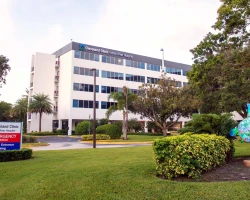
Vero Beach, United States
Specializations: Cardiac surgery, Vascular surgery, Thoracic surgery, Neurosurgery, Spine surgery, Orthopedic surgery, Oncology
Since opening our doors 88 years ago, Cleveland Clinic Indian River Hospital has grown from a small community facility to a 332-bed, not-for-profit hospital. Our
read more
5
from Tanusraj Tanus
November 30, 2023
I recently found myself admitted to Mahkota Hospital due to a severe migraine, and I must express my gratitude for the exceptional care and support I received during my stay, particularly in Ward 9.Nurse Linda and the entire team in Ward 9 went above and beyond to ensure my well-being. Nurse Litta, in particular, demonstrated unwavering dedication and compassion in her care. Her attentiveness, professionalism, and genuine concern for patients like me were truly remarkable. She not only attended to my medical needs promptly but also provided much-needed emotional support, creating a comforting environment during a challenging time.The overall atmosphere of Ward 9 was remarkable—clean, organized, and conducive to healing. The staff's collective effort in maintaining a high standard of care while fostering a supportive atmosphere did not go unnoticed.My experience at Mahkota Hospital, especially in Ward 9, was reassuring and comforting, largely due to Nurse Linda's exceptional care. I wholeheartedly recommend this hospital and Ward 9 for their outstanding healthcare and the compassionate approach they bring to patient well-being.Heartfelt thanks to Nurse Linda and the entire team in Ward 9 for their dedication and unwavering commitment to patient care.
5
from Lucia Peng
November 25, 2023
I would like to thank Dr Chan and his team for the successful TKR surgery. He is very proficient, professional and yet humble! I don't encounter much pain after the surgery and I am recovering well. Thank you very much Dr Chan! Highly recommended him !!
Would like also to thank the staff of ward 7B who are friendly and helpful. However noted that there is insufficient walking frame during my stay. I've limited mobility and this creates inconvenience for me as I have to share with other patients. This should not be happening!
Overall the rooms are newly refurbished and very comfortable. Thank you!
5
from Dr Sukhveer
October 08, 2023
5 star service by Dr Wan ( Gynecologist ) and Dr Loo ( Pediatrician ). Baby delivery went on smooth, special thanks to all the lovely staff at Level 2 ward for their utmost kindness and pleasant hospitality throughout the 2 days there.
Dr’s were very professional from the very start till the end.
Thank you again and highly recommended
Prices for popular procedures:
-
Transcatheter pulmonary valve replacement (PVR)
≈ $20,961
-
Coronary artery bypass graft (CABG)
≈ $26,063
-
Heart valve replacement
≈ $30,069
-
Heart valve repair
≈ $32,229
-
Aortic valve replacement (AVR)
≈ $31,289
-
Mitral valve replacement (MVR)
≈ $22,504
-
Transcatheter aortic valve replacement (TAVR)
≈ $39,686
-
Off-pump coronary artery bypass surgery
≈ $30,026
-
Fontan procedure
≈ $22,022
4.1
5 reviews
5
from Tanusraj Tanus
November 30, 2023
I recently found myself admitted to Mahkota Hospital due to a severe migraine, and I must express my gratitude for the exceptional care and support I received during my stay, particularly in Ward 9.Nurse Linda and the entire team in Ward 9 went above and beyond to ensure my well-being. Nurse Litta, in particular, demonstrated unwavering dedication and compassion in her care. Her attentiveness, professionalism, and genuine concern for patients like me were truly remarkable. She not only attended to my medical needs promptly but also provided much-needed emotional support, creating a comforting environment during a challenging time.The overall atmosphere of Ward 9 was remarkable—clean, organized, and conducive to healing. The staff's collective effort in maintaining a high standard of care while fostering a supportive atmosphere did not go unnoticed.My experience at Mahkota Hospital, especially in Ward 9, was reassuring and comforting, largely due to Nurse Linda's exceptional care. I wholeheartedly recommend this hospital and Ward 9 for their outstanding healthcare and the compassionate approach they bring to patient well-being.Heartfelt thanks to Nurse Linda and the entire team in Ward 9 for their dedication and unwavering commitment to patient care.
5
from Lucia Peng
November 25, 2023
I would like to thank Dr Chan and his team for the successful TKR surgery. He is very proficient, professional and yet humble! I don't encounter much pain after the surgery and I am recovering well. Thank you very much Dr Chan! Highly recommended him !!
Would like also to thank the staff of ward 7B who are friendly and helpful. However noted that there is insufficient walking frame during my stay. I've limited mobility and this creates inconvenience for me as I have to share with other patients. This should not be happening!
Overall the rooms are newly refurbished and very comfortable. Thank you!
5
from Dr Sukhveer
October 08, 2023
5 star service by Dr Wan ( Gynecologist ) and Dr Loo ( Pediatrician ). Baby delivery went on smooth, special thanks to all the lovely staff at Level 2 ward for their utmost kindness and pleasant hospitality throughout the 2 days there.
Dr’s were very professional from the very start till the end.
Thank you again and highly recommended
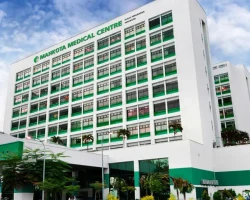
Malacca, Malaysia
Specializations: Cardiac surgery, Vascular surgery, Thoracic surgery, Neurosurgery, Spine surgery, Orthopedic surgery, Oncology
Mahkota Medical Centre, one of the largest private hospitals in Southern Peninsular Malaysia, is a multi-disciplinary private hospital located in the heart of Melaka, a
read more
5
from Savera Ali khan
December 06, 2023
I lived most of my life suffering from pain and discomfort that kept getting worse. I was diagnosed with endometriosis 2 month ago and underwent a surgery with Dr Gul Rana. From the initial consultation to the surgery and follow-up care, the entire process was smooth. She made me feel comfortable every step of the way. The surgical procedure was success, I walked out with a set date for laparoscopic surgery. After 7 days of my surgery, I walk out of her clinic but this time pain-free, healthier and feel more confident. Thank you, Dr. Gul e Rana and her assistant Ms Manju for being so so nice and helpful. Thank you once again for your exceptional care and I immensely more grateful for the care I received from CSH staff and Specially nurses. I highly recommend Dr. Gul e Rana to anyone seeking top-notch gynecological care. If I had the option, I would give Dr. Gul e Rana a perfect 10-star rating! Her compassion, understanding, calm demeanor, and genuine care for her patients are truly remarkable. Her extensive knowledge allows her to explain complex matters in a way that anyone can easily grasp. She is the best...❤️❤️❤️
1
from Daniel R. Blanco Jr.
November 24, 2023
I was referred by a friend to see one of your specialists, but I'm experiencing difficulties with the booking system. The staff handling the process lacks in customer service and marketing skills. Instead of retaining customers, they seem to be pushing them away. I suggest implementing more engaging scheduling options to keep patients interested.
5
from Yoshica Suntharanathan
November 04, 2023
Thank you so much Dr Sarah Alam Endocrinologist for the difference you make in the lives of your patients. Your kindness, sincere caring, and concern make everything better and are a great encouragement.
I am a diabetic since 2018 and visited many doctors. They just prescribed medicines and I couldn’t control my sugar level at all. I wanted to give a try at the Canadian Hospital and I went there in August. When I visited Dr Sarah Alam Endocrinologist my Hba1c level was at 9.9 and yesterday after the test it was down at 6. Such a vast improvement. Dr Sarah’s aim was to control my sugar level. She is so skilled at what she does. I had a lot of health complications when I went to her and now I feel a lot better in every aspect. I never thought I could get better, but she put me on the right medications and gave me the proper treatment. She is keen to know about everything that affects the patient, and treats even the slightest problem they have. Also, she respects your phone calls and messages and replies timely. She calls personally to check up on you. I had the best experience with her, I recommend her to all diabetics who are with uncontrolled sugar levels and others who need to visit an endocrinologist. She’s the best in Dubai. She’s a remarkable doctor and a professional I can trust.
Prices for popular procedures:
-
Balloon valvuloplasty
≈ $20,270
-
Percutaneous balloon pulmonary valvuloplasty (PBPV)
≈ $18,198
-
Open commissurotomy
≈ $22,377
-
Open pulmonary valvotomy
≈ $32,372
-
Dual chamber pacemaker insertion
≈ $14,511
-
Permanent pacemaker implantation
≈ $14,693
-
Cardiac catheterization
≈ $5,412
-
Percutaneous ASD closure
≈ $16,542
-
Percutaneous closure of ventricular septal defect (VSD)
≈ $19,754
4.1
5 reviews
5
from Savera Ali khan
December 06, 2023
I lived most of my life suffering from pain and discomfort that kept getting worse. I was diagnosed with endometriosis 2 month ago and underwent a surgery with Dr Gul Rana. From the initial consultation to the surgery and follow-up care, the entire process was smooth. She made me feel comfortable every step of the way. The surgical procedure was success, I walked out with a set date for laparoscopic surgery. After 7 days of my surgery, I walk out of her clinic but this time pain-free, healthier and feel more confident. Thank you, Dr. Gul e Rana and her assistant Ms Manju for being so so nice and helpful. Thank you once again for your exceptional care and I immensely more grateful for the care I received from CSH staff and Specially nurses. I highly recommend Dr. Gul e Rana to anyone seeking top-notch gynecological care. If I had the option, I would give Dr. Gul e Rana a perfect 10-star rating! Her compassion, understanding, calm demeanor, and genuine care for her patients are truly remarkable. Her extensive knowledge allows her to explain complex matters in a way that anyone can easily grasp. She is the best...❤️❤️❤️
1
from Daniel R. Blanco Jr.
November 24, 2023
I was referred by a friend to see one of your specialists, but I'm experiencing difficulties with the booking system. The staff handling the process lacks in customer service and marketing skills. Instead of retaining customers, they seem to be pushing them away. I suggest implementing more engaging scheduling options to keep patients interested.
5
from Yoshica Suntharanathan
November 04, 2023
Thank you so much Dr Sarah Alam Endocrinologist for the difference you make in the lives of your patients. Your kindness, sincere caring, and concern make everything better and are a great encouragement.
I am a diabetic since 2018 and visited many doctors. They just prescribed medicines and I couldn’t control my sugar level at all. I wanted to give a try at the Canadian Hospital and I went there in August. When I visited Dr Sarah Alam Endocrinologist my Hba1c level was at 9.9 and yesterday after the test it was down at 6. Such a vast improvement. Dr Sarah’s aim was to control my sugar level. She is so skilled at what she does. I had a lot of health complications when I went to her and now I feel a lot better in every aspect. I never thought I could get better, but she put me on the right medications and gave me the proper treatment. She is keen to know about everything that affects the patient, and treats even the slightest problem they have. Also, she respects your phone calls and messages and replies timely. She calls personally to check up on you. I had the best experience with her, I recommend her to all diabetics who are with uncontrolled sugar levels and others who need to visit an endocrinologist. She’s the best in Dubai. She’s a remarkable doctor and a professional I can trust.
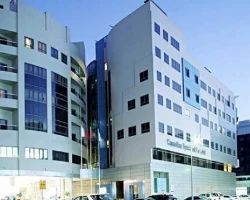
Dubai, United Arab Emirates
Specializations: Cardiac surgery, Vascular surgery, Neurosurgery, Spine surgery, Orthopedic surgery, Oncology
The Canadian Specialist Hospital (CSH) is the brainchild of its Chairman, Mr. Mohammad Rashid Al Falasi. His vision is to establish a World Class medical
read more
1
from michel mollero
December 02, 2023
HANNAH KIRÁLY i hope you will read my message because the surgeon who disfigured me is the same as yours. And even though i spoke very little it to those around me, i met three people who were completly disapointed in having breast transplants done by this surgeon.
Like you, I suffered enormously psychologically from the result of this operation. My face wasn’t the same at all and that wasn’t the goal!!
I also woke up during the operation because i was choking from the blood running down my throat. I heard voice of the nurse only at that moment.
The result was a disaster and i had to have three operations in another hospital to repair the damage.
5
from sol so
October 30, 2023
I gave birth at Yanhee Hospital with Dr. Apichat.
He’s excellent and very good and experienced in natural as well. At the beginning I want to go with natural and he always pro with it.
But in the end I choose to do C-section,
And I had fabulous experience and I recovered after 7 days and being able to do everything normally and the incisions healed very well.
Dr. Apichat understand English but he will reply in thai. However every international client of yanhee hospital will get assistant/translator for every checkup and during the stay for delivery. Highly recommend Sai Htun Win (Sonic) he’s excellent and very helpful and professional! Couldn’t be more happy with all free things he has done for me and my family!
I had amazing birth experience with this doctor and this hospital, they willing to help me with everything they can do since the first time i come here.
1
from Charlotte Yong
October 01, 2023
HORRIBLE EXPERIENCE
I waited one full hour to get a facial done.
And that’s after complaining along the way.
Very unprofessional and waste patients time.
Each step took 15/20 mins.
There’s no communication about how long I should wait.
I always come here but today was the worse experience.
Never ever again.
Prices for popular procedures:
-
Transcatheter pulmonary valve replacement (PVR)
≈ $30,882
-
Dual chamber pacemaker insertion
≈ $12,724
-
Coronary artery bypass graft (CABG)
≈ $24,807
-
Heart valve replacement
≈ $37,203
-
Heart valve repair
≈ $34,643
-
Aortic valve replacement (AVR)
≈ $37,418
-
Mitral valve replacement (MVR)
≈ $28,366
-
Transcatheter aortic valve replacement (TAVR)
≈ $59,202
-
Off-pump coronary artery bypass surgery
≈ $31,711
3.8
5 reviews
1
from michel mollero
December 02, 2023
HANNAH KIRÁLY i hope you will read my message because the surgeon who disfigured me is the same as yours. And even though i spoke very little it to those around me, i met three people who were completly disapointed in having breast transplants done by this surgeon.
Like you, I suffered enormously psychologically from the result of this operation. My face wasn’t the same at all and that wasn’t the goal!!
I also woke up during the operation because i was choking from the blood running down my throat. I heard voice of the nurse only at that moment.
The result was a disaster and i had to have three operations in another hospital to repair the damage.
5
from sol so
October 30, 2023
I gave birth at Yanhee Hospital with Dr. Apichat.
He’s excellent and very good and experienced in natural as well. At the beginning I want to go with natural and he always pro with it.
But in the end I choose to do C-section,
And I had fabulous experience and I recovered after 7 days and being able to do everything normally and the incisions healed very well.
Dr. Apichat understand English but he will reply in thai. However every international client of yanhee hospital will get assistant/translator for every checkup and during the stay for delivery. Highly recommend Sai Htun Win (Sonic) he’s excellent and very helpful and professional! Couldn’t be more happy with all free things he has done for me and my family!
I had amazing birth experience with this doctor and this hospital, they willing to help me with everything they can do since the first time i come here.
1
from Charlotte Yong
October 01, 2023
HORRIBLE EXPERIENCE
I waited one full hour to get a facial done.
And that’s after complaining along the way.
Very unprofessional and waste patients time.
Each step took 15/20 mins.
There’s no communication about how long I should wait.
I always come here but today was the worse experience.
Never ever again.

Bangkok, Thailand
Specializations: Cardiac surgery, Vascular surgery, Thoracic surgery, Neurosurgery, Spine surgery, Orthopedic surgery, Oncology
Languages: English
In 1984, a year after our graduation from medical school, I and my closest doctor friends opened a small out-patient clinic we called the Yanhee
read more
5
from Seema Mehra
October 23, 2023
The Signature hospital is well connected and easy to access, making it a great option for those seeking quality healthcare.
Overall treatment is good. The services were good and the staff and doctors were excellent in all ways. Everything was good. Very good treatment and the doctors are very friendly.
I would definitely recommend this hospital to family and friends!
5
from Prashant Yadav
September 20, 2023
In this hospital where I had my appendicitis operation provided excellent care. The medical staff was attentive and professional throughout my stay. The surgery went smoothly, and the recovery process was well-managed. I felt confident in their expertise, making a stressful situation more manageable. Overall, a top-notch healthcare experience...!✌🏻😄
5
from pawan singh dafouti
August 26, 2023
I recently had an exceptional experience at Signature Advanced Specialty Hospital. From the moment I walked in, the staff was incredibly welcoming and attentive. The doctors displayed a high level of expertise and took the time to thoroughly explain the treatment plan, putting me at ease. The hospital's state-of-the-art facilities and advanced technology were impressive. I also appreciated the cleanliness and organization throughout the hospital.
Prices for popular procedures:
-
Transcatheter pulmonary valve replacement (PVR)
≈ $13,237
-
Coronary artery bypass graft (CABG)
≈ $7,818
-
Heart valve replacement
≈ $11,724
-
Heart valve repair
≈ $13,879
-
Aortic valve replacement (AVR)
≈ $8,525
-
Mitral valve replacement (MVR)
≈ $10,713
-
Transcatheter aortic valve replacement (TAVR)
≈ $27,119
-
Off-pump coronary artery bypass surgery
≈ $5,560
-
Radiofrequency ablation (RFA)
≈ $10,710
4.7
5 reviews
5
from Seema Mehra
October 23, 2023
The Signature hospital is well connected and easy to access, making it a great option for those seeking quality healthcare.
Overall treatment is good. The services were good and the staff and doctors were excellent in all ways. Everything was good. Very good treatment and the doctors are very friendly.
I would definitely recommend this hospital to family and friends!
5
from Prashant Yadav
September 20, 2023
In this hospital where I had my appendicitis operation provided excellent care. The medical staff was attentive and professional throughout my stay. The surgery went smoothly, and the recovery process was well-managed. I felt confident in their expertise, making a stressful situation more manageable. Overall, a top-notch healthcare experience...!✌🏻😄
5
from pawan singh dafouti
August 26, 2023
I recently had an exceptional experience at Signature Advanced Specialty Hospital. From the moment I walked in, the staff was incredibly welcoming and attentive. The doctors displayed a high level of expertise and took the time to thoroughly explain the treatment plan, putting me at ease. The hospital's state-of-the-art facilities and advanced technology were impressive. I also appreciated the cleanliness and organization throughout the hospital.

Gurgaon, India
Specializations: Cardiac surgery, Vascular surgery, Neurosurgery, Spine surgery, Orthopedic surgery, Oncology
Languages: English, Hindi
“With 40 years of experience, the Best is the threshold from where we up our ante in expertise and technology, when it comes to healthcare
read more
5
from Yi Lu
June 17, 2023
As a foreigner travelling to Prague, this hospital was very helpful. When I got there, the foreign reception was closed and it was hard to communicate with the late at the emergency. Once I was admitted, the doctors and nurses were very competent professionals during my 3 days stay there.
1
from Tom Tom
February 21, 2023
SKIP THIS PLACE! Hospital with old school doctors who see the need to question you inappropriately and then chastise you for coming in after hours with “nothing major.” The attitude in this hospital reflects a pre 1989 mentality when staff were unaware that ever patient is PRIMARILY a client! Go somewhere else; anywhere!!!
5
from P W
September 20, 2022
Omg! After living in CZ as English speaker for almost 3 years, I finally found the best hospital here. I was here mostly at the cardiology department. Most of the nurses can speak English. Even if they are not, they still try to communicate with you. And ofc, all doctor can speak English. All of them are so patient, nice, and friendly. I was super surprise that I had some chitchat with some nurses during the waiting times. The waiting time is logically make sense. I can simply say, they love their jobs. I can’t recommend anywhere else rather than here :)
Best one 😊
Prices for popular procedures:
-
Transcatheter pulmonary valve replacement (PVR)
≈ $16,171
-
Balloon valvuloplasty
≈ $15,967
-
Percutaneous balloon pulmonary valvuloplasty (PBPV)
≈ $5,824
-
Open commissurotomy
≈ $10,836
-
Open pulmonary valvotomy
≈ $16,890
-
Dual chamber pacemaker insertion
≈ $7,411
-
Coronary artery bypass graft (CABG)
≈ $5,968
-
Heart valve replacement
≈ $22,115
-
Heart valve repair
≈ $20,526
4.4
5 reviews
5
from Yi Lu
June 17, 2023
As a foreigner travelling to Prague, this hospital was very helpful. When I got there, the foreign reception was closed and it was hard to communicate with the late at the emergency. Once I was admitted, the doctors and nurses were very competent professionals during my 3 days stay there.
1
from Tom Tom
February 21, 2023
SKIP THIS PLACE! Hospital with old school doctors who see the need to question you inappropriately and then chastise you for coming in after hours with “nothing major.” The attitude in this hospital reflects a pre 1989 mentality when staff were unaware that ever patient is PRIMARILY a client! Go somewhere else; anywhere!!!
5
from P W
September 20, 2022
Omg! After living in CZ as English speaker for almost 3 years, I finally found the best hospital here. I was here mostly at the cardiology department. Most of the nurses can speak English. Even if they are not, they still try to communicate with you. And ofc, all doctor can speak English. All of them are so patient, nice, and friendly. I was super surprise that I had some chitchat with some nurses during the waiting times. The waiting time is logically make sense. I can simply say, they love their jobs. I can’t recommend anywhere else rather than here :)
Best one 😊

Prague, Czech Republic
Specializations: Cardiac surgery, Vascular surgery, Thoracic surgery, Neurosurgery, Spine surgery, Orthopedic surgery, Oncology
Na Homolce Hospital is an organization directly subordinate to the Ministry of Health. It is a specialized clinical facility focusing on highly skilled, technologically advanced
read more
5
from jaya singh prince
December 06, 2023
Dr. Aiham ENT doctor.
Thank you so very much. I am so pleased with the outcome of my surgery. I am so grateful to you! Thanks also to all your wonderful staff members for their patience with all my questions and support for all my fears. Although it has only been three weeks ago today from the time of my surgery I wanted to let you know how very, very pleased I am with the results of the surgery. I already feel so much better about myself. I also felt the need to let you know how much I did appreciate your patience and the kindness you showed me. Thanks my dear doctor.
1
from Bold Veronese
December 04, 2023
Waiting time for the insurance is very long, response from doctor to insurance is too slow, very poor management, you have to wait very long time to get response from the team, I experienced this at Diabetic centre. Similarly experience I faced in the past while my daughter was admitted in August as she is type 1 diabetic, hospital Insurance team is not responsive, they need to update their system fast, as I my insurance send me screen shot on approvals time, still nurses make us wait as they are waiting for response from in-house insurance team. I would like to address CEO of the Hospital, please do something to bring the same quality as it was before as this was one of the best hospital & now in my eyes it is worst with poor service, poor management
5
from Noel Sun
October 08, 2023
Excellent experience, as always.
Dr. Hanaa was so thorough & detailed - very professional.
The first patient contact at reception, Jasmin - amazingly welcoming & courteous…the sweet smile says it all. Regina, the nurse on duty - very supportive and helpful. Extremely prompt & quick in doing her tasks.
Indeed, one of the best, truly a ‘Center of Excellence’ in AHD - Diabetes Clinic 👍👍👍
Prices for popular procedures:
-
Transcatheter pulmonary valve replacement (PVR)
≈ $37,206
-
Dual chamber pacemaker insertion
≈ $14,511
-
Coronary artery bypass graft (CABG)
≈ $18,690
-
Heart valve replacement
≈ $22,815
-
Heart valve repair
≈ $43,196
-
Aortic valve replacement (AVR)
≈ $44,760
-
Mitral valve replacement (MVR)
≈ $33,660
-
Transcatheter aortic valve replacement (TAVR)
≈ $76,349
-
Off-pump coronary artery bypass surgery
≈ $42,918
3.8
5 reviews
5
from jaya singh prince
December 06, 2023
Dr. Aiham ENT doctor.
Thank you so very much. I am so pleased with the outcome of my surgery. I am so grateful to you! Thanks also to all your wonderful staff members for their patience with all my questions and support for all my fears. Although it has only been three weeks ago today from the time of my surgery I wanted to let you know how very, very pleased I am with the results of the surgery. I already feel so much better about myself. I also felt the need to let you know how much I did appreciate your patience and the kindness you showed me. Thanks my dear doctor.
1
from Bold Veronese
December 04, 2023
Waiting time for the insurance is very long, response from doctor to insurance is too slow, very poor management, you have to wait very long time to get response from the team, I experienced this at Diabetic centre. Similarly experience I faced in the past while my daughter was admitted in August as she is type 1 diabetic, hospital Insurance team is not responsive, they need to update their system fast, as I my insurance send me screen shot on approvals time, still nurses make us wait as they are waiting for response from in-house insurance team. I would like to address CEO of the Hospital, please do something to bring the same quality as it was before as this was one of the best hospital & now in my eyes it is worst with poor service, poor management
5
from Noel Sun
October 08, 2023
Excellent experience, as always.
Dr. Hanaa was so thorough & detailed - very professional.
The first patient contact at reception, Jasmin - amazingly welcoming & courteous…the sweet smile says it all. Regina, the nurse on duty - very supportive and helpful. Extremely prompt & quick in doing her tasks.
Indeed, one of the best, truly a ‘Center of Excellence’ in AHD - Diabetes Clinic 👍👍👍

Dubai, United Arab Emirates
Specializations: Cardiac surgery, Vascular surgery, Thoracic surgery, Neurosurgery, Spine surgery, Orthopedic surgery, Oncology
Languages: English
A premier private healthcare provider in the Middle East, American Hospital, part of Mohamed & Obaid Al Mulla Group, was established in 1996 with the
read more
5
from Chetna Raja
November 29, 2023
I recently delivered my baby boy at Kings College Dubai Hills. I had a memorable and an amazing experience and felt so at home. My husband and I were so humbled and couldn’t have asked for more private care. All the staff and nurses were excellent and I was in good hands. However, Leanne my midwife was exceptionally helpful and was like a second Mum to me. She went above and beyond all the time to make sure I was ok. She assisted me with everything I had to learn and know as a new Mum and always made me feel at ease. She is always so hardworking, professional and passionate about what she does. I’ve never met someone who loves what they do so much! Leanne has provided so much care post my delivery as well and she has become a very close friend of mine. I can confidently recommend Leanne as she deserves it. I am convinced that having her as a member of staff will be a valuable asset.
5
from Anastasia Golovko
November 28, 2023
I delivered my baby with King's in July 2022. I highly recommend the hospital and stuff working there, everyone was very supportive and kind.
I am sincerely grateful to Dr. Esra for my delivery.
On a separate note, I sincerely want to thank Mary Grace for her kind support. As a first time mother, even whilst I was attending Antenatal classes, I lacked practical experience of how to take care of baby. Mary Grace was very attentive and showed us how to bath and change the baby, explaining many interesting life hacks. Her support and explanation how to breastfeed the baby was indispensable, without her I would not be that lucky to establish breastfeeding which I continue to date.
5
from Oksana Grishina
November 26, 2023
Dr. May Ali has been an incredible support throughout my twin pregnancy journey. Her professionalism and unwavering support guided me every step of the way. Her expertise and care during the C-section brought my beautiful baby girls into the world safely. I'm immensely grateful for her dedication and expertise. Additionally, her assistant Princy was always attentive and supportive, making the entire experience even more reassuring. I'm definitely continuing as Dr. May's patient for any future needs🙂
Prices for popular procedures:
-
Transcatheter pulmonary valve replacement (PVR)
≈ $37,206
-
Dual chamber pacemaker insertion
≈ $14,511
-
Coronary artery bypass graft (CABG)
≈ $18,690
-
Heart valve replacement
≈ $22,815
-
Heart valve repair
≈ $43,196
-
Aortic valve replacement (AVR)
≈ $44,760
-
Mitral valve replacement (MVR)
≈ $33,660
-
Transcatheter aortic valve replacement (TAVR)
≈ $76,349
-
Off-pump coronary artery bypass surgery
≈ $42,918
4.3
5 reviews
5
from Chetna Raja
November 29, 2023
I recently delivered my baby boy at Kings College Dubai Hills. I had a memorable and an amazing experience and felt so at home. My husband and I were so humbled and couldn’t have asked for more private care. All the staff and nurses were excellent and I was in good hands. However, Leanne my midwife was exceptionally helpful and was like a second Mum to me. She went above and beyond all the time to make sure I was ok. She assisted me with everything I had to learn and know as a new Mum and always made me feel at ease. She is always so hardworking, professional and passionate about what she does. I’ve never met someone who loves what they do so much! Leanne has provided so much care post my delivery as well and she has become a very close friend of mine. I can confidently recommend Leanne as she deserves it. I am convinced that having her as a member of staff will be a valuable asset.
5
from Anastasia Golovko
November 28, 2023
I delivered my baby with King's in July 2022. I highly recommend the hospital and stuff working there, everyone was very supportive and kind.
I am sincerely grateful to Dr. Esra for my delivery.
On a separate note, I sincerely want to thank Mary Grace for her kind support. As a first time mother, even whilst I was attending Antenatal classes, I lacked practical experience of how to take care of baby. Mary Grace was very attentive and showed us how to bath and change the baby, explaining many interesting life hacks. Her support and explanation how to breastfeed the baby was indispensable, without her I would not be that lucky to establish breastfeeding which I continue to date.
5
from Oksana Grishina
November 26, 2023
Dr. May Ali has been an incredible support throughout my twin pregnancy journey. Her professionalism and unwavering support guided me every step of the way. Her expertise and care during the C-section brought my beautiful baby girls into the world safely. I'm immensely grateful for her dedication and expertise. Additionally, her assistant Princy was always attentive and supportive, making the entire experience even more reassuring. I'm definitely continuing as Dr. May's patient for any future needs🙂
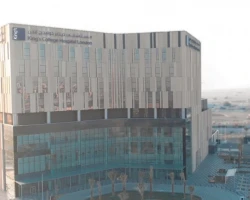
Dubai, United Arab Emirates
Specializations: Cardiac surgery, Vascular surgery, Thoracic surgery, Neurosurgery, Spine surgery, Orthopedic surgery, Oncology
Languages: English
King’s College Hospital Dubai has been established to provide for the healthcare needs of the whole family and, whether your medical problem is simple or
read more
5
from Anil Keshkar
December 08, 2023
Everything was perfect The doctors and staff are very caring, efficient and handle everything with great deal of understanding and patience. There is no time wasted or any waiting during any off the procedures. Highly recommend this top hospital and their doctors, thanks Dr. Arneja .
5
from Rajendra Mehra
November 06, 2023
Better than any other hospitals i can think of. Admission and treatment is very good . staff is good. They will take good care of your patient . they take great and immediate care of the patient .
Special thanks Dr Arneja sir
5
from ashish zunjipelli
October 27, 2023
"I recently had the excellent experience of having my father undergo bypass surgery at Arneja hospital. I can't praise the hospital staff enough for their friendliness and cooperation. They took care of everything exceptionally well, and all the services provided were spot on. Any doubts or concerns we had were promptly addressed. I highly recommend this hospital for the exceptional care and support they offer."
Prices for popular procedures:
-
Transcatheter pulmonary valve replacement (PVR)
≈ $13,237
-
Balloon valvuloplasty
≈ $4,661
-
Percutaneous balloon pulmonary valvuloplasty (PBPV)
≈ $5,101
-
Open commissurotomy
≈ $2,064
-
Open pulmonary valvotomy
≈ $11,144
-
Dual chamber pacemaker insertion
≈ $4,386
-
Heart valve replacement
≈ $11,724
-
Heart valve repair
≈ $13,879
-
Aortic valve replacement (AVR)
≈ $8,525
4.8
5 reviews
5
from Anil Keshkar
December 08, 2023
Everything was perfect The doctors and staff are very caring, efficient and handle everything with great deal of understanding and patience. There is no time wasted or any waiting during any off the procedures. Highly recommend this top hospital and their doctors, thanks Dr. Arneja .
5
from Rajendra Mehra
November 06, 2023
Better than any other hospitals i can think of. Admission and treatment is very good . staff is good. They will take good care of your patient . they take great and immediate care of the patient .
Special thanks Dr Arneja sir
5
from ashish zunjipelli
October 27, 2023
"I recently had the excellent experience of having my father undergo bypass surgery at Arneja hospital. I can't praise the hospital staff enough for their friendliness and cooperation. They took care of everything exceptionally well, and all the services provided were spot on. Any doubts or concerns we had were promptly addressed. I highly recommend this hospital for the exceptional care and support they offer."
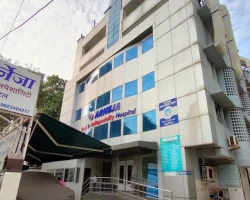
Nagpur, India
Specializations: Cardiac surgery, Vascular surgery, Thoracic surgery, Neurosurgery, Spine surgery, Orthopedic surgery, Oncology
Arneja Heart & Multi-Speciality Hospital has been established with an aim to provide world-class cardiac care in central India. It is the largest and the
read more
3
from Nongluck Nopp.
December 07, 2023
TERRIBLY SLOW!! 1 hour in a queue for payment and medicine collection. I’ve been using this hospital for several years and the service is significantly getting worse.
There’s no SMS or any notifications to let you know when your queue is coming up, so you have no choice but to wait patiently in the waiting area. Staffs were nice and friendly but there must be something totally wrong with the system or process. Please take this as a feedback to improve your service.
5
from steven melissa
November 26, 2023
I prebooked my consultation and surgey from New Zealand at Sikarin Hospital, Their International team made everything so easy for me, beautiful hospital, very clean and all the staff i encounted were fantastic, My Doctor in urology dept was excellent as was his team. I am happy to recommend this hospital to all travelers and of coarse the lovely Thai people. Thank you.
1
from Saowakhon Fungkhachorn
October 02, 2023
The service usual great but now just dropped below acceptable. Loud construction noise in waiting area, long wait time. Very disappointed
Prices for popular procedures:
-
Transcatheter pulmonary valve replacement (PVR)
≈ $30,882
-
Dual chamber pacemaker insertion
≈ $12,724
-
Coronary artery bypass graft (CABG)
≈ $24,807
-
Heart valve replacement
≈ $37,203
-
Heart valve repair
≈ $34,643
-
Aortic valve replacement (AVR)
≈ $37,418
-
Mitral valve replacement (MVR)
≈ $28,366
-
Transcatheter aortic valve replacement (TAVR)
≈ $59,202
-
Off-pump coronary artery bypass surgery
≈ $31,711
4.6
5 reviews
3
from Nongluck Nopp.
December 07, 2023
TERRIBLY SLOW!! 1 hour in a queue for payment and medicine collection. I’ve been using this hospital for several years and the service is significantly getting worse.
There’s no SMS or any notifications to let you know when your queue is coming up, so you have no choice but to wait patiently in the waiting area. Staffs were nice and friendly but there must be something totally wrong with the system or process. Please take this as a feedback to improve your service.
5
from steven melissa
November 26, 2023
I prebooked my consultation and surgey from New Zealand at Sikarin Hospital, Their International team made everything so easy for me, beautiful hospital, very clean and all the staff i encounted were fantastic, My Doctor in urology dept was excellent as was his team. I am happy to recommend this hospital to all travelers and of coarse the lovely Thai people. Thank you.
1
from Saowakhon Fungkhachorn
October 02, 2023
The service usual great but now just dropped below acceptable. Loud construction noise in waiting area, long wait time. Very disappointed

Bangkok, Thailand
Specializations: Cardiac surgery, Vascular surgery, Neurosurgery, Spine surgery, Orthopedic surgery, Oncology
Languages: Arabic, Bengali, Burmese, Chinese, English, French, Japanese, Khmer
Sikarin was established to provide services for both domestic and international patients. We have the expertise of specialists in patient care. And with modern technology,
read more
1
from KITTY CAT
November 08, 2023
AVOID THEIR ER.
They will give you test and procedures that has nothing to do with what you came for.
Pregnancy Test and CT Scan for cough and sore throat?! Come on!
Stop scamming people! If you really must visit them, always ask and check first what they want to do. If it's irrelevant, just SAY NO!
YOU'VE BEEN WARNED!
1
from Candice LV
November 08, 2023
My relative was confined in this hospital for four days. In those four days, her doctor only visited her twice but charged us P8,000 as PF. Nurses only came in when called--via phone because the nurse call button was cut. We were monitoring our patient's fever ourselves.
I've reviewed the bill and there were questionable charges as well like gloves, tape etc. It's not as if the nurses finished all of those supplies but we were charged for the whole amount nonetheless. This would have been okay if the excess supplies were given to the patient upon discharge.
ER charges were unreasonable as well. There were only three patients when we came in yet the whole process of admitting the patient took 2 hours, meanwhile incurring more and more charges in the ER.
But the worst part of the experience was requiring the patient to have a companion for the purpose of having someone actually take care of the patient.
Doesn't that negate the purpose of going to the hospital? You go to a hospital to get medical treatment and care. But it seemed like we were only there for the convenience of having labs done and having IV fluids--which to be honest can be done at home--because the actual care of the patient came from the companion.
In effect, companions need to miss work to take care of the patient. For as long as the patient is confined, they miss the opportunity to earn money--which they need in the first place to be able to pay for the high hospital bill. It's an oppressive system.
This set-up would have been forgivable if companions had a comfortable bed if they are required to be with the patient 24/7. But no, they are only given a plastic chair. And even if we get the private room, a companion is still required.
People go to private hospitals for better service, but it seems like the only difference between DLSMC and a public hospital is that this hospital has aircon. What a waste of hard-earned money.
5
from Jellyn Colindres
October 11, 2023
Amazing and professional Doctors, Nurses, and Staff. They really value their patient's well-being. Kudos to everyone. Godbless you all!
Special thanks to Dra. Mary Grace B. Rojas. Very compassionate and responsive to my queries.
Prices for popular procedures:
-
Balloon valvuloplasty
$3,496
-
Percutaneous balloon pulmonary valvuloplasty (PBPV)
≈ $6,137
-
Dual chamber pacemaker insertion
$3,506
-
Coronary artery bypass graft (CABG)
$17,930
-
Off-pump coronary artery bypass surgery
≈ $17,221
-
Permanent pacemaker implantation
$2,604 - $3,506
-
Cardiac catheterization
≈ $2,106
-
Percutaneous ASD closure
$1,002
-
Percutaneous closure of ventricular septal defect (VSD)
$3,496
4.0
5 reviews
1
from KITTY CAT
November 08, 2023
AVOID THEIR ER.
They will give you test and procedures that has nothing to do with what you came for.
Pregnancy Test and CT Scan for cough and sore throat?! Come on!
Stop scamming people! If you really must visit them, always ask and check first what they want to do. If it's irrelevant, just SAY NO!
YOU'VE BEEN WARNED!
1
from Candice LV
November 08, 2023
My relative was confined in this hospital for four days. In those four days, her doctor only visited her twice but charged us P8,000 as PF. Nurses only came in when called--via phone because the nurse call button was cut. We were monitoring our patient's fever ourselves.
I've reviewed the bill and there were questionable charges as well like gloves, tape etc. It's not as if the nurses finished all of those supplies but we were charged for the whole amount nonetheless. This would have been okay if the excess supplies were given to the patient upon discharge.
ER charges were unreasonable as well. There were only three patients when we came in yet the whole process of admitting the patient took 2 hours, meanwhile incurring more and more charges in the ER.
But the worst part of the experience was requiring the patient to have a companion for the purpose of having someone actually take care of the patient.
Doesn't that negate the purpose of going to the hospital? You go to a hospital to get medical treatment and care. But it seemed like we were only there for the convenience of having labs done and having IV fluids--which to be honest can be done at home--because the actual care of the patient came from the companion.
In effect, companions need to miss work to take care of the patient. For as long as the patient is confined, they miss the opportunity to earn money--which they need in the first place to be able to pay for the high hospital bill. It's an oppressive system.
This set-up would have been forgivable if companions had a comfortable bed if they are required to be with the patient 24/7. But no, they are only given a plastic chair. And even if we get the private room, a companion is still required.
People go to private hospitals for better service, but it seems like the only difference between DLSMC and a public hospital is that this hospital has aircon. What a waste of hard-earned money.
5
from Jellyn Colindres
October 11, 2023
Amazing and professional Doctors, Nurses, and Staff. They really value their patient's well-being. Kudos to everyone. Godbless you all!
Special thanks to Dra. Mary Grace B. Rojas. Very compassionate and responsive to my queries.
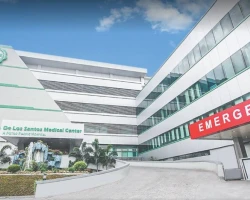
Quezon City, Philippines
Specializations: Cardiac surgery, Vascular surgery, Neurosurgery, Spine surgery, Orthopedic surgery, Oncology
De Los Santos Medical Center (DLSMC) is a 150-bed, Level 3 private tertiary hospital in Quezon City with over 350 active and visiting multi-specialist physicians.
read more
1
from BBB by Triple M
November 28, 2023
The worst hospital ever. Staff is great but the organization is all about profit. We could’ve been discharged by 11AM. We followed up multiple times. We had to wait til 5PM for someone to show up and check on the patient. Billing said we had to wait til 7PM to pay so they can account for the “necessary” charges. They want to keep you here, I’m telling you. Obviously, the longer you stay, the more you need to pay.
5
from Sandra Maguad
November 15, 2023
Very good experience with AHMC. Doctors were great and knowledgeable. Nurses are approachable and patient. Their room rates are also worth it.
4
from Claire Ocsillos
September 11, 2023
I had a positive experience at this hospital. The guards, nurses, and staff were all very accommodating, and I felt well taken care of. The ER Doctor was particularly impressive, as they took the time to explain everything in detail.
However, there were some drawbacks. The ER bed areas were a bit small, with only one chair, no table, and limited space to walk around. This made the waiting area less comfortable than I would have liked.
Nevertheless, it was still a good experience.
Prices for popular procedures:
-
Transcatheter pulmonary valve replacement (PVR)
≈ $18,435
-
Balloon valvuloplasty
≈ $3,496
-
Percutaneous balloon pulmonary valvuloplasty (PBPV)
≈ $6,137
-
Open commissurotomy
≈ $11,593
-
Open pulmonary valvotomy
≈ $12,337
-
Dual chamber pacemaker insertion
≈ $4,186
-
Coronary artery bypass graft (CABG)
≈ $19,008
-
Heart valve replacement
≈ $21,190
-
Heart valve repair
≈ $24,092
3.9
5 reviews
1
from BBB by Triple M
November 28, 2023
The worst hospital ever. Staff is great but the organization is all about profit. We could’ve been discharged by 11AM. We followed up multiple times. We had to wait til 5PM for someone to show up and check on the patient. Billing said we had to wait til 7PM to pay so they can account for the “necessary” charges. They want to keep you here, I’m telling you. Obviously, the longer you stay, the more you need to pay.
5
from Sandra Maguad
November 15, 2023
Very good experience with AHMC. Doctors were great and knowledgeable. Nurses are approachable and patient. Their room rates are also worth it.
4
from Claire Ocsillos
September 11, 2023
I had a positive experience at this hospital. The guards, nurses, and staff were all very accommodating, and I felt well taken care of. The ER Doctor was particularly impressive, as they took the time to explain everything in detail.
However, there were some drawbacks. The ER bed areas were a bit small, with only one chair, no table, and limited space to walk around. This made the waiting area less comfortable than I would have liked.
Nevertheless, it was still a good experience.
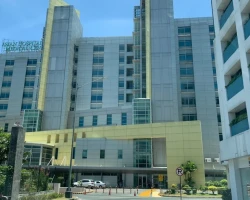
Muntinlupa, Philippines
Specializations: Cardiac surgery, Vascular surgery, Thoracic surgery, Neurosurgery, Spine surgery, Orthopedic surgery, Oncology
Asian Hospital and Medical Center (AHMC) was founded on a vision to provide the Filipino people top notch medical service that is at par with
read more
5
from Kwanchai Quinzy Yokto
November 15, 2023
Can't complain anything.
Service: Outstanding with all details and support for senior generation and physical issues. We were there for many time foe myself and family. This Hospital were first class for Thais people and they are take care you in good way of treat.
Details: Excellent and clear to understand more after visiting the doctor.
Payment: Really helpful and good support for those who has insurance concerns.
1
from Supawat Poonjiradejma
October 07, 2023
Today, I went to visit this hospital because I had - bad sore throat. I went to another hospital first, but the wait is too long.
Nurses: Here some nurses are nice, but some nurses have bad attitude, especially the way they talk at Eye/eye/nose/throat station. I told them that I checked covid earlier, and they tried to scared me away with 200 baht extra cost for covid test first. I was so sick that I would not want to deal with them.
Doctor: The doctor I met today doesn’t seem to be well-educated or not attention to detail. Normally, I would get tested to find my symptoms is from virus or bacteria before prescribing antibiotics. I don’t want to take too many antibiotics because it is bad for my health in the long run. Also, my body has some red dots on my skin. I told the doctor that. I thought I would get skin medicine, but he seems to forget it or just prescribes me an allergy medicine to take which I’m not sure it is for my running nose or skin allergy.
Price: The bill is not clear of how much each medicine costs. There are only 3 medicines. The cost was over 3,000 baht. 2,000 baht for the medicine which seems to be over-priced.
I would not recommend this hospital if you are coming here.
4
from Dennis Ward
April 18, 2023
2 day stay for cancer surgery. After being assisted to my room prior to surgery their procedures just don't make since.
When they tried to insert the IV before a shower and before changing into hospital clothes I directed the nurse to come back just prior to me going to the OR.
5 hours before surgery take a shower and change. 1 hour before surgery nurse shaves and directs another shower. Put on a different set of clothes. Ask for IV Team to come back. IV inserted the told to change clothes again.
Poor planning and communication.
New staff comes on shift and everything went smoothly and logically.
OR Staff were Excellent.
Sr Anesthesia was Extremely Professional really like him.
Recovery Room Staff Excellent.
Back in the room and the again were Super.
The 1 draw back was initially they couldn't understand that a Farang's pain wasn't alleviated by a single Tylenol. I did get the pain meds I needed though.
Concerning the food, it is actually very good.
All in All I'm happy I came here.
Prices for popular procedures:
-
Transcatheter pulmonary valve replacement (PVR)
≈ $30,882
-
Balloon valvuloplasty
≈ $26,826
-
Percutaneous balloon pulmonary valvuloplasty (PBPV)
≈ $11,791
-
Open commissurotomy
≈ $19,873
-
Open pulmonary valvotomy
≈ $30,551
-
Dual chamber pacemaker insertion
≈ $12,724
-
Coronary artery bypass graft (CABG)
≈ $24,807
-
Heart valve replacement
≈ $37,203
-
Heart valve repair
≈ $34,643
3.8
5 reviews
5
from Kwanchai Quinzy Yokto
November 15, 2023
Can't complain anything.
Service: Outstanding with all details and support for senior generation and physical issues. We were there for many time foe myself and family. This Hospital were first class for Thais people and they are take care you in good way of treat.
Details: Excellent and clear to understand more after visiting the doctor.
Payment: Really helpful and good support for those who has insurance concerns.
1
from Supawat Poonjiradejma
October 07, 2023
Today, I went to visit this hospital because I had - bad sore throat. I went to another hospital first, but the wait is too long.
Nurses: Here some nurses are nice, but some nurses have bad attitude, especially the way they talk at Eye/eye/nose/throat station. I told them that I checked covid earlier, and they tried to scared me away with 200 baht extra cost for covid test first. I was so sick that I would not want to deal with them.
Doctor: The doctor I met today doesn’t seem to be well-educated or not attention to detail. Normally, I would get tested to find my symptoms is from virus or bacteria before prescribing antibiotics. I don’t want to take too many antibiotics because it is bad for my health in the long run. Also, my body has some red dots on my skin. I told the doctor that. I thought I would get skin medicine, but he seems to forget it or just prescribes me an allergy medicine to take which I’m not sure it is for my running nose or skin allergy.
Price: The bill is not clear of how much each medicine costs. There are only 3 medicines. The cost was over 3,000 baht. 2,000 baht for the medicine which seems to be over-priced.
I would not recommend this hospital if you are coming here.
4
from Dennis Ward
April 18, 2023
2 day stay for cancer surgery. After being assisted to my room prior to surgery their procedures just don't make since.
When they tried to insert the IV before a shower and before changing into hospital clothes I directed the nurse to come back just prior to me going to the OR.
5 hours before surgery take a shower and change. 1 hour before surgery nurse shaves and directs another shower. Put on a different set of clothes. Ask for IV Team to come back. IV inserted the told to change clothes again.
Poor planning and communication.
New staff comes on shift and everything went smoothly and logically.
OR Staff were Excellent.
Sr Anesthesia was Extremely Professional really like him.
Recovery Room Staff Excellent.
Back in the room and the again were Super.
The 1 draw back was initially they couldn't understand that a Farang's pain wasn't alleviated by a single Tylenol. I did get the pain meds I needed though.
Concerning the food, it is actually very good.
All in All I'm happy I came here.
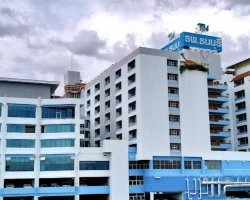
Bangkok, Thailand
Specializations: Cardiac surgery, Vascular surgery, Neurosurgery, Spine surgery, Orthopedic surgery, Oncology
Languages: English, Khmer
Thonburi Hospital is a tertiary care hospital that provides a wide-range of high-quality medicaland surgical services. Established on May 10, 1977, it has since then
read more
5
from roxanne estor
October 23, 2023
Staff are friendly, courteous and very helpful.
I was discharged from other hospital and was advised to wait for call after 18 hours of excrutiating pain, I was sent home with nothing just that re-assuring words from not-so-friendly nurse that "doctor will just call me" and Leukocytes already almost doubling, CT and UTZ both showing abnormalities, as a healthcare provider myself, knowing something is already wrong, decided to go to Sunnybrook.
The moment you enter ER, you will greeted by friendly old lady who will assist you on their process of registration.
ER nurses are very friendly and doctors will let you feel you're human with feelings. They're all efficient and knowledgable. I was admitted shortly after and did not wait long.
I will be forever be grateful.
5
from Erosha Amendra
September 23, 2023
September 6, 2023 ⭐️⭐️⭐️⭐️⭐️
Today, I had an appointment with my MS doctor at Sunnybrook. Having been here for appointments in the past, I've always been impressed with the high-quality service they provide. Parking is conveniently located near the front entrance, and there are nearby pay stations for easy access. Inside, they have hand sanitizing stations and provide masks, and you'll find plenty of helpful staff to answer any questions and guide you through the hospital. Wheelchairs are also readily available at the entrance.
I have the utmost satisfaction with Dr. Lee, who consistently takes the time to address all my questions and ensures I have a clear understanding of my medical plan. I feel incredibly fortunate to have access to such excellent healthcare services.
5
from Shawn Christo
September 06, 2023
Visited Sunnybrook Hospital as a guest of a patient. Volunteer staff was very helpful and able to guide us to the correct wing of Hospital.
There is an ATM on the 1st floor close to the information desk.
There are hand sanitizing throughout the hospital and at the main entrance there is also a self dispensing mask station which was very convenient.
Gift store had very friendly staff and there was such a wide variety of toys, puzzles, t-shirts, stationary, greeting cards and everything in between alongside some gadgets.
The areas of the hospital visited were very well kept.
Prices for popular procedures:
-
Transcatheter pulmonary valve replacement (PVR)
≈ $36,153
-
Balloon valvuloplasty
≈ $23,737
-
Percutaneous balloon pulmonary valvuloplasty (PBPV)
≈ $23,600
-
Open commissurotomy
≈ $27,835
-
Open pulmonary valvotomy
≈ $33,832
-
Coronary artery bypass graft (CABG)
≈ $41,635
-
Heart valve replacement
≈ $45,539
-
Heart valve repair
≈ $53,404
-
Aortic valve replacement (AVR)
≈ $46,668
3.3
5 reviews
5
from roxanne estor
October 23, 2023
Staff are friendly, courteous and very helpful.
I was discharged from other hospital and was advised to wait for call after 18 hours of excrutiating pain, I was sent home with nothing just that re-assuring words from not-so-friendly nurse that "doctor will just call me" and Leukocytes already almost doubling, CT and UTZ both showing abnormalities, as a healthcare provider myself, knowing something is already wrong, decided to go to Sunnybrook.
The moment you enter ER, you will greeted by friendly old lady who will assist you on their process of registration.
ER nurses are very friendly and doctors will let you feel you're human with feelings. They're all efficient and knowledgable. I was admitted shortly after and did not wait long.
I will be forever be grateful.
5
from Erosha Amendra
September 23, 2023
September 6, 2023 ⭐️⭐️⭐️⭐️⭐️
Today, I had an appointment with my MS doctor at Sunnybrook. Having been here for appointments in the past, I've always been impressed with the high-quality service they provide. Parking is conveniently located near the front entrance, and there are nearby pay stations for easy access. Inside, they have hand sanitizing stations and provide masks, and you'll find plenty of helpful staff to answer any questions and guide you through the hospital. Wheelchairs are also readily available at the entrance.
I have the utmost satisfaction with Dr. Lee, who consistently takes the time to address all my questions and ensures I have a clear understanding of my medical plan. I feel incredibly fortunate to have access to such excellent healthcare services.
5
from Shawn Christo
September 06, 2023
Visited Sunnybrook Hospital as a guest of a patient. Volunteer staff was very helpful and able to guide us to the correct wing of Hospital.
There is an ATM on the 1st floor close to the information desk.
There are hand sanitizing throughout the hospital and at the main entrance there is also a self dispensing mask station which was very convenient.
Gift store had very friendly staff and there was such a wide variety of toys, puzzles, t-shirts, stationary, greeting cards and everything in between alongside some gadgets.
The areas of the hospital visited were very well kept.

Toronto, Canada
Specializations: Cardiac surgery, Vascular surgery, Thoracic surgery, Neurosurgery, Spine surgery, Orthopedic surgery, Oncology
About Sunnybrook Our mission is to care for our patients and their families when it matters most. Our vision is to invent the future of
read more
5
from Clementina London
October 20, 2022
Going there for the first time, getting information and seeing the Doctor was fast and easy.
1
from David Chase
February 05, 2022
Went to see a doctor who claimed he had been trained at Johns Hopkins. His degrees were completely fake. Unreal. Avoid this hospital at all costs.
3
from Elena Arreguín Osuna
April 12, 2021
The worst service when I was going out from an ambulatory surgery. The person from collection apartments and invoice was rude and unprofessional. The service was very good.
Prices for popular procedures:
-
Transcatheter pulmonary valve replacement (PVR)
≈ $17,733
-
Dual chamber pacemaker insertion
≈ $7,735
-
Coronary artery bypass graft (CABG)
≈ $25,148
-
Heart valve replacement
≈ $2,690
-
Heart valve repair
≈ $22,793
-
Aortic valve replacement (AVR)
≈ $25,119
-
Mitral valve replacement (MVR)
≈ $20,329
-
Transcatheter aortic valve replacement (TAVR)
≈ $36,610
-
Off-pump coronary artery bypass surgery
≈ $18,677
4.0
5 reviews
5
from Clementina London
October 20, 2022
Going there for the first time, getting information and seeing the Doctor was fast and easy.
1
from David Chase
February 05, 2022
Went to see a doctor who claimed he had been trained at Johns Hopkins. His degrees were completely fake. Unreal. Avoid this hospital at all costs.
3
from Elena Arreguín Osuna
April 12, 2021
The worst service when I was going out from an ambulatory surgery. The person from collection apartments and invoice was rude and unprofessional. The service was very good.
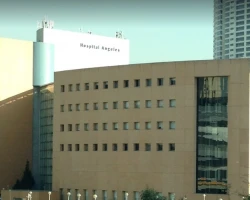
Mexico City, Mexico
Specializations: Cardiac surgery, Vascular surgery, Thoracic surgery, Neurosurgery, Spine surgery, Orthopedic surgery, Oncology
1
from Alex Ferrandiz
October 04, 2023
My worst experience in a hospital for far.
My room is beside a place that are remodeling, 12 hours of the sound of a hammer constantly.
Due my operation I can not eat solids, so the only thing they are offering me is pocket soup, no veggies no fruits, nothing.
And forget about to find the manager, she is never in the office, and she will never pick up the phone.
The personal in my station are good the most of them, the problem in hospital is systematic.
1
from Wenwen Mao
September 12, 2023
The most irresponsible and unprofessional team I've ever met. My oparation was cancelled one day before the last minute, after all the preparation. Even worse, for more than one month, no apologize, no explaination and no call back to arrange a new time for the oparation.
1
from WC J
May 16, 2023
Worst hospital I have ever been too.
They are under staffed and under funded and
care more about making money then care of patients.
Cancelled appointments without letting patients know due to broken equipment and staff shortages.
You would get batter care in a third world country hospital.
Asklepios is a shinning example of how broken the German Medical System is.
Prices for popular procedures:
-
Transcatheter pulmonary valve replacement (PVR)
≈ $61,997
-
Balloon valvuloplasty
≈ $32,488
-
Percutaneous balloon pulmonary valvuloplasty (PBPV)
≈ $22,329
-
Open commissurotomy
≈ $39,354
-
Open pulmonary valvotomy
≈ $37,034
-
Coronary artery bypass graft (CABG)
≈ $46,314
-
Heart valve replacement
≈ $74,719
-
Heart valve repair
≈ $57,199
-
Aortic valve replacement (AVR)
≈ $52,485
2.8
5 reviews
1
from Alex Ferrandiz
October 04, 2023
My worst experience in a hospital for far.
My room is beside a place that are remodeling, 12 hours of the sound of a hammer constantly.
Due my operation I can not eat solids, so the only thing they are offering me is pocket soup, no veggies no fruits, nothing.
And forget about to find the manager, she is never in the office, and she will never pick up the phone.
The personal in my station are good the most of them, the problem in hospital is systematic.
1
from Wenwen Mao
September 12, 2023
The most irresponsible and unprofessional team I've ever met. My oparation was cancelled one day before the last minute, after all the preparation. Even worse, for more than one month, no apologize, no explaination and no call back to arrange a new time for the oparation.
1
from WC J
May 16, 2023
Worst hospital I have ever been too.
They are under staffed and under funded and
care more about making money then care of patients.
Cancelled appointments without letting patients know due to broken equipment and staff shortages.
You would get batter care in a third world country hospital.
Asklepios is a shinning example of how broken the German Medical System is.

Hamburg, Germany
Specializations: Cardiac surgery, Vascular surgery, Thoracic surgery, Neurosurgery, Spine surgery, Orthopedic surgery, Oncology
For more than 190 years, our hospital has been representing medical expertise and responsibility. As a maximum care hospitalwith five medical centers and 20 specialist
read more
Clinics grouping by rating
Clinic with the highest rating of 5 — Clinical Hospital Lapino in Moscow, Russia and 5 more, clinic with the most reviews number of 35757 — Aster CMI hospital in Bengaluru, India.
With rating 4.0 and over — 200 clinics .
Countries with the highest number of clinics treating the diseases:
Pulmonary valve stenosis:
worldwide
560 clinics
India
38 clinics
Brazil
32 clinics
Germany
29 clinics
Turkey
29 clinics
Colombia
25 clinics
Related procedures:
Procedures are likely to be used for Pulmonary valve stenosis treatment:
Balloon valvuloplasty,
Open commissurotomy,
Open pulmonary valvotomy,
Percutaneous balloon pulmonary valvuloplasty (PBPV),
and
Transcatheter pulmonary valve replacement (PVR)
.
Quick navigation
Procedures
Diseases
- Balloon angioplasty and stenting of aorta coarctation $524 - $51,493
- Cardiac catheterization $241 - $10,343
- Coarctectomy in children $1,012 - $76,680
- Coil embolization of intracardiac shunts and fistulas $713 - $31,741
- Extracorporeal membrane oxygenation (ECMO) $952 - $1,131,510
- Heart tumor surgery $654 - $73,060
- Intraaortic balloon pump (IABP) procedure $155 - $256,865
- Left atrial appendage occlusion $2,159 - $163,295
- MAZE procedure $3,120 - $166,340
- Minimally invasive valvular heart surgery with valve repair or replacement $2,162 - $8,441
- NobleStitch™ PFO closure procedure ≈ $8,208
- Open-heart intracardiac foreign body removal $713 - $102,052
- Patent ductus arteriosus (PDA) open heart surgery in adults $1,512 - $45,319
- Percutaneous ASD closure $238 - $163,295
- Percutaneous closure of ventricular septal defect (VSD) $238 - $163,295
- Rashkind procedure $420 - $39,229
- Surgery for tetralogy of Fallot (TOF) in adults $1,880 - $58,384
- Surgical ventricular restoration (SVR) $832 - $78,568
- Transcatheter closure of patent ductus arteriosus (PDA) in adults $606 - $45,374
- Ventricular septal defect (VSD) repair $879 - $86,390
- Aortic valve insufficiency
- Aortic valve stenosis
- Atrial fibrillation (AFib)
- Coarctation of the aorta (CoA)
- Foreign bodies in the heart
- Heart failure
- Heart tumor
- Heart valve disease
- Mitral valve insufficiency
- Mitral valve stenosis
- Multivalvular disease
- Myocardial infarction (MI)
- Pneumonia
- Pulmonary hypertension
- Sinus of valsalva aneurysm (SOVA)
- Tricuspid valve insufficiency
- Tricuspid valve stenosis
- Valvular insufficiency
- Ventricular aneurysm
- Ventricular septal rupture (VSR)

